|
Click on pictures to enlarge
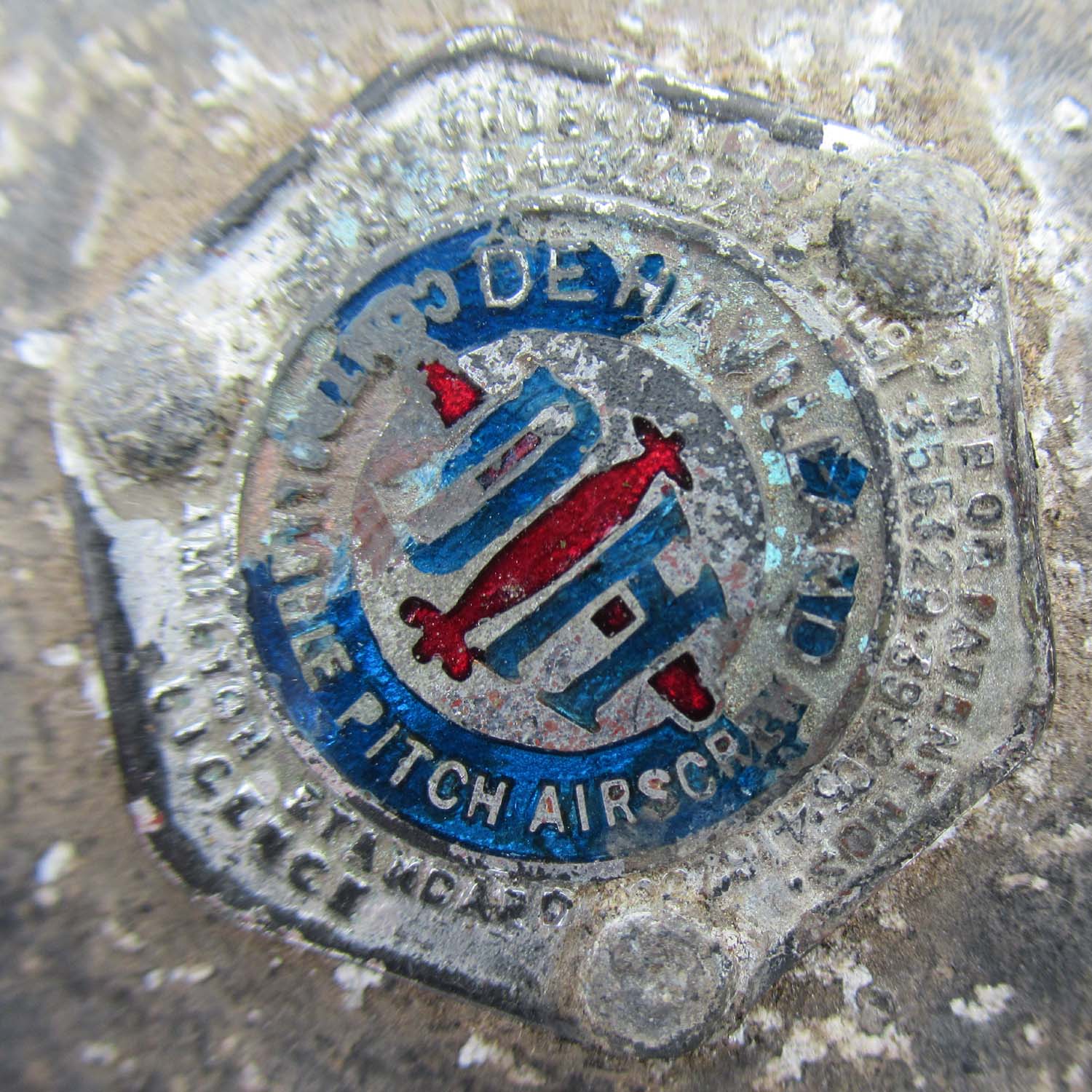
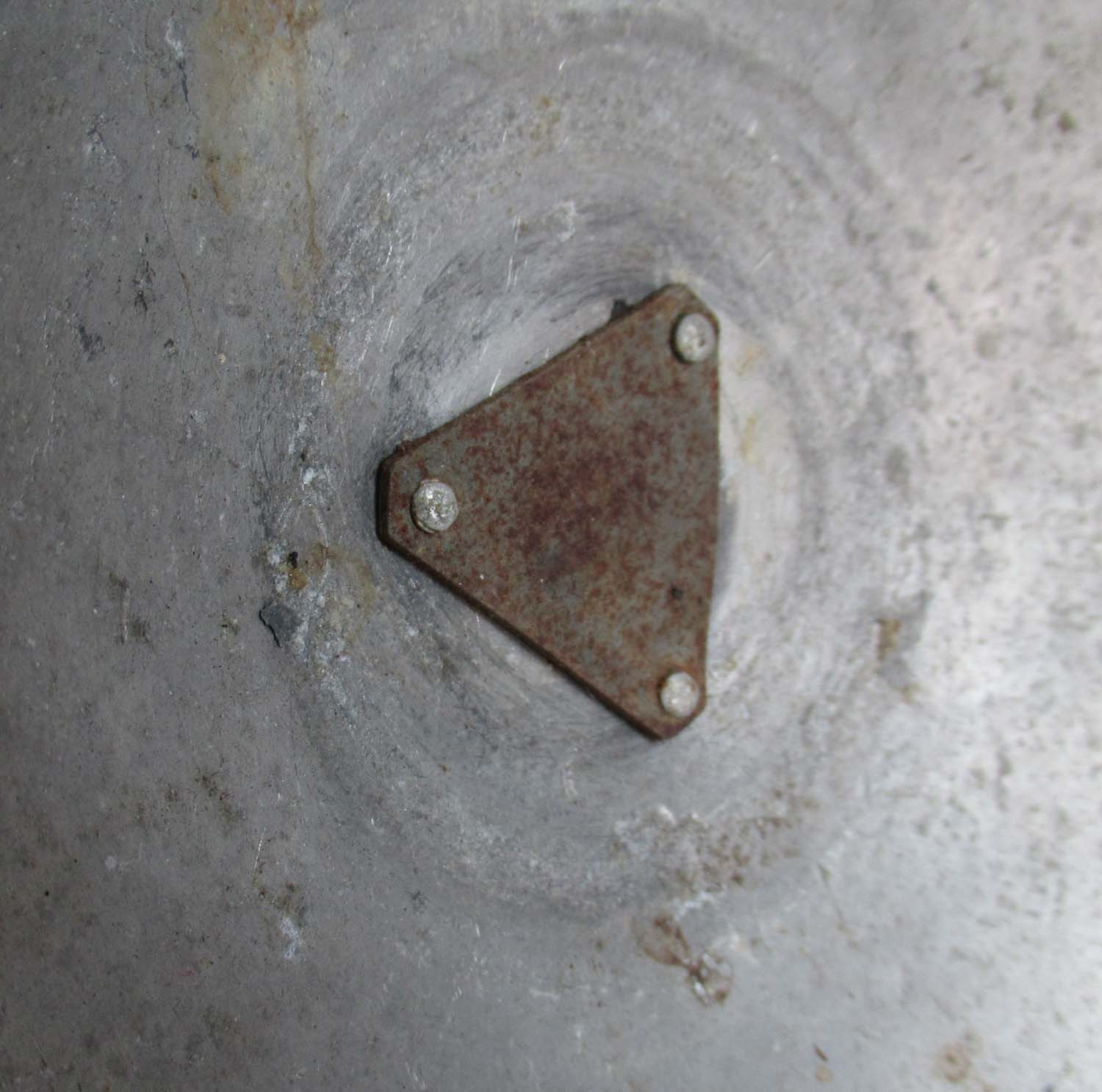
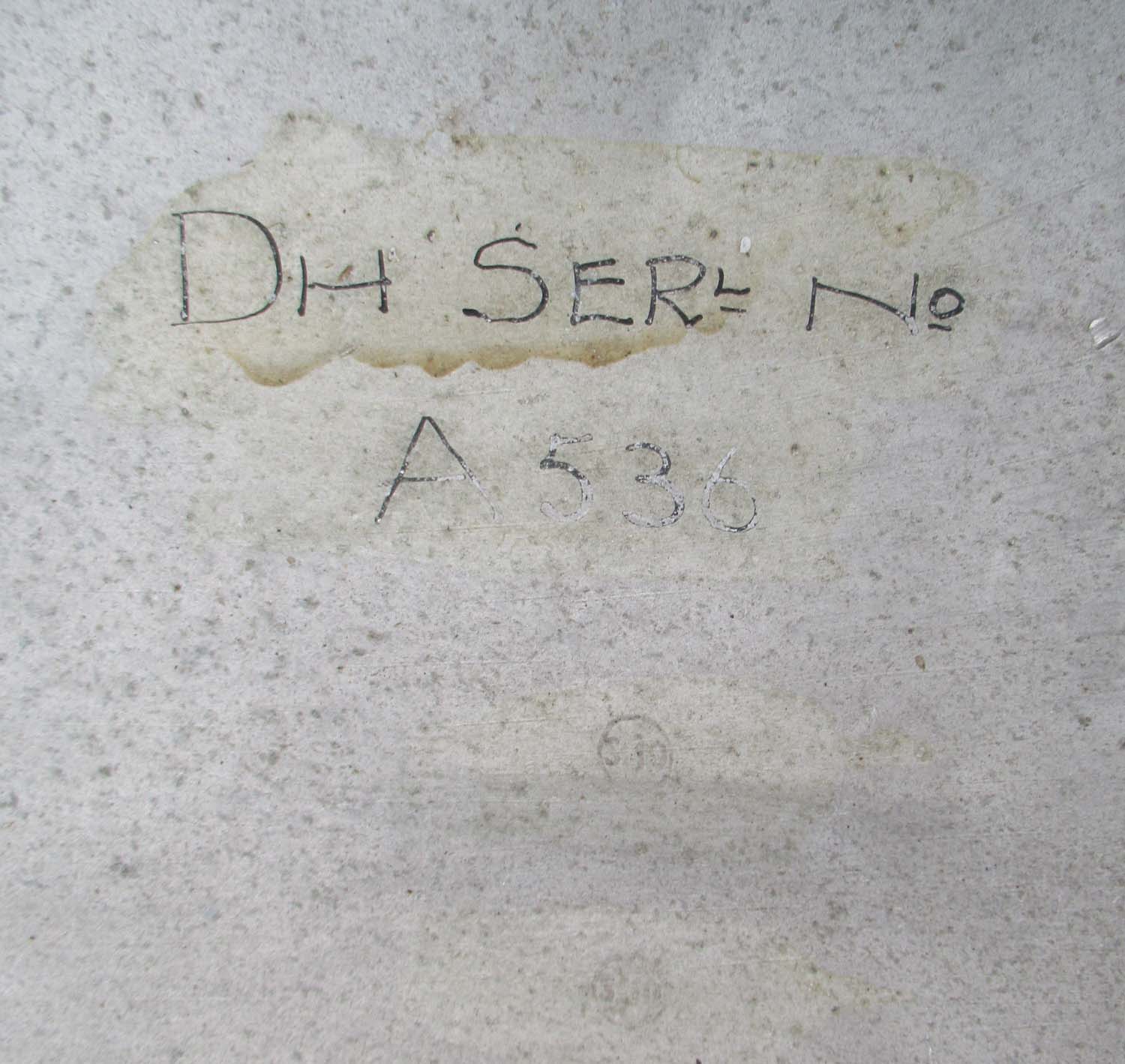
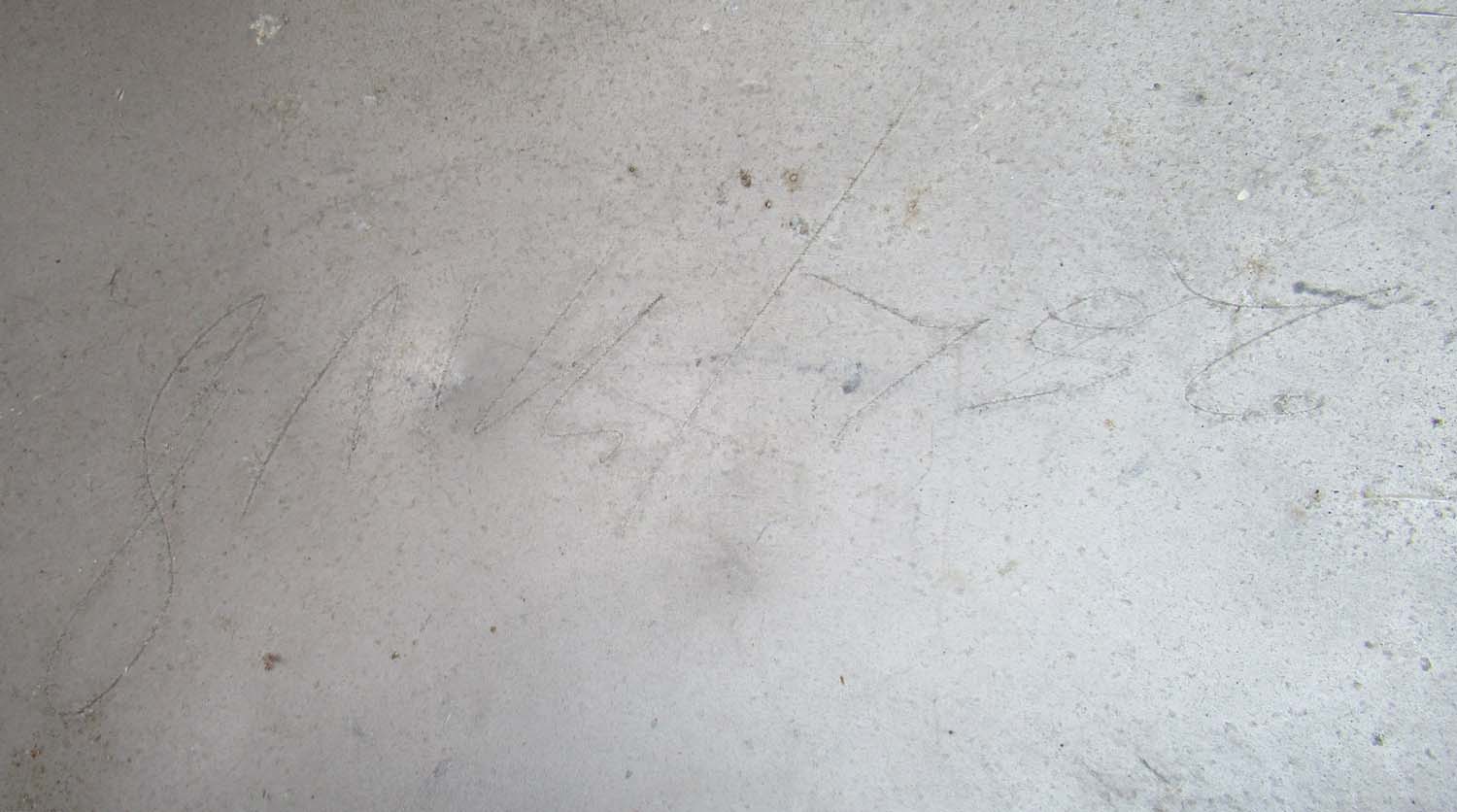
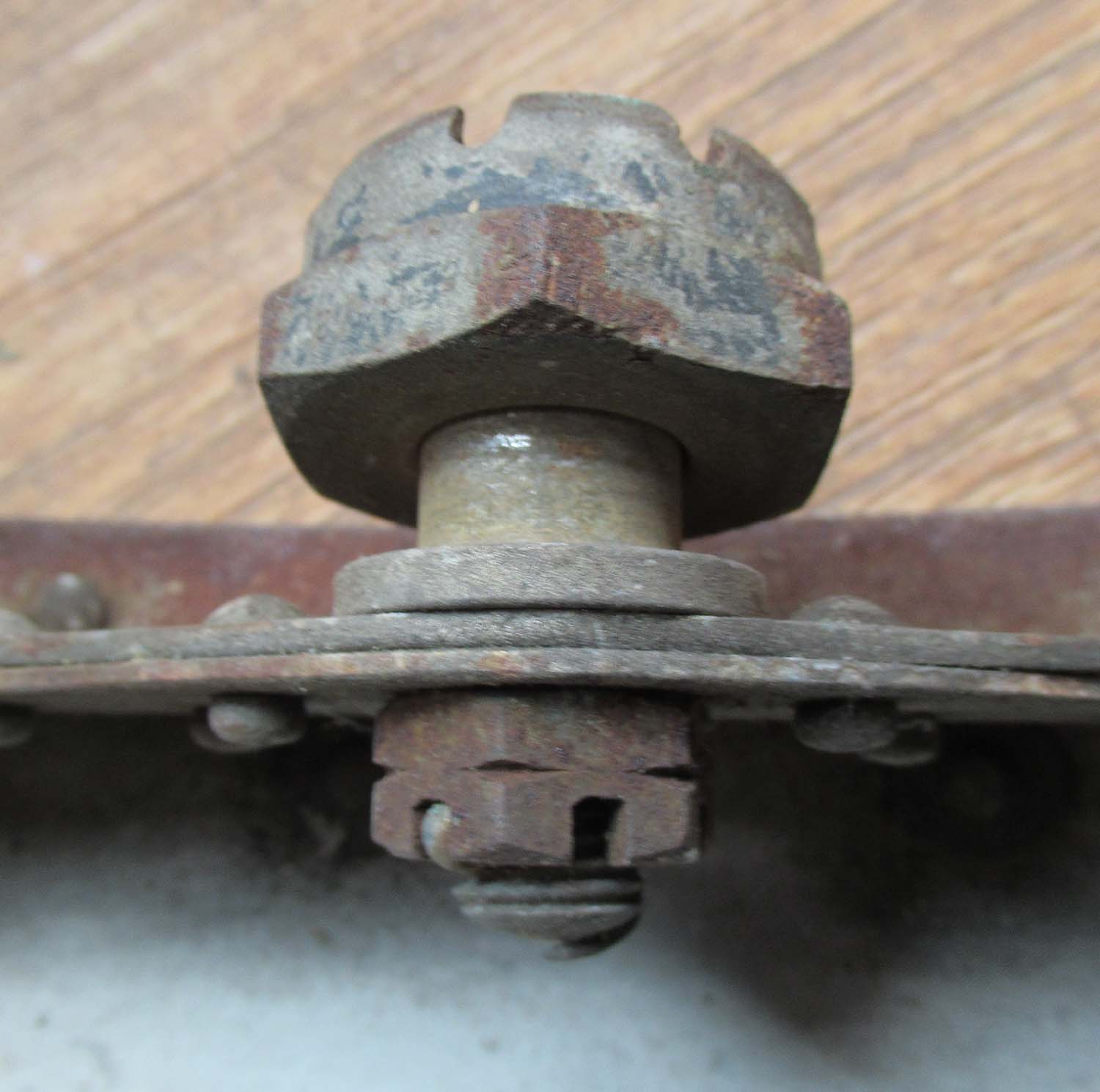 |
Westland
Lysander Spinner (No 9 pg
1 Prop)
Here we
have a Spinner from a Westland Lysander with a super rare DH
badge.
Parts from this aircraft almost never appear .
We have a collection of Lysander parts that make
up the main components of the cockpit. If anyone was
thinking of building a cockpit these are the parts you need.
I cannot stress how hard to find these parts are in all the
20 plus years I have been collecting and trading I have only
seen small parts of this aircraft.
Currently
we also have a seat, complete control column
assembly with original spade grip and substantial mounting
cross member and the engine mounting plate , these are all
listed in their relevant categories.
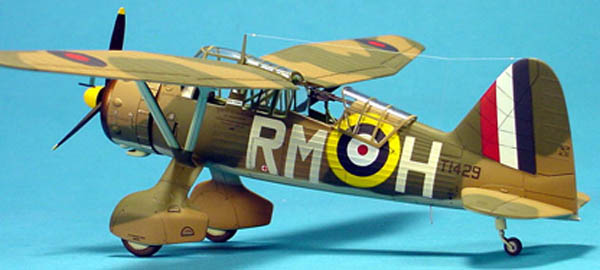
The Westland Lysander is a
British army co-operation and liaison aircraft produced by
Westland Aircraft that was used immediately before and
during the Second World War.
After becoming obsolete in the army co-operation role, the
aircraft's short take off performance enabled clandestine
missions using small improvised airstrips behind enemy
lines to place or recover agents, particularly in occupied
France with the help of the French Resistance.
During the Battle of Britain
this amazingly versatile aircraft was fitted with 20mm
cannons mounted on the undercarriage as the RAF were short
of ground attack aircraft in the event of an invasion.
Click on pictures to enlarge

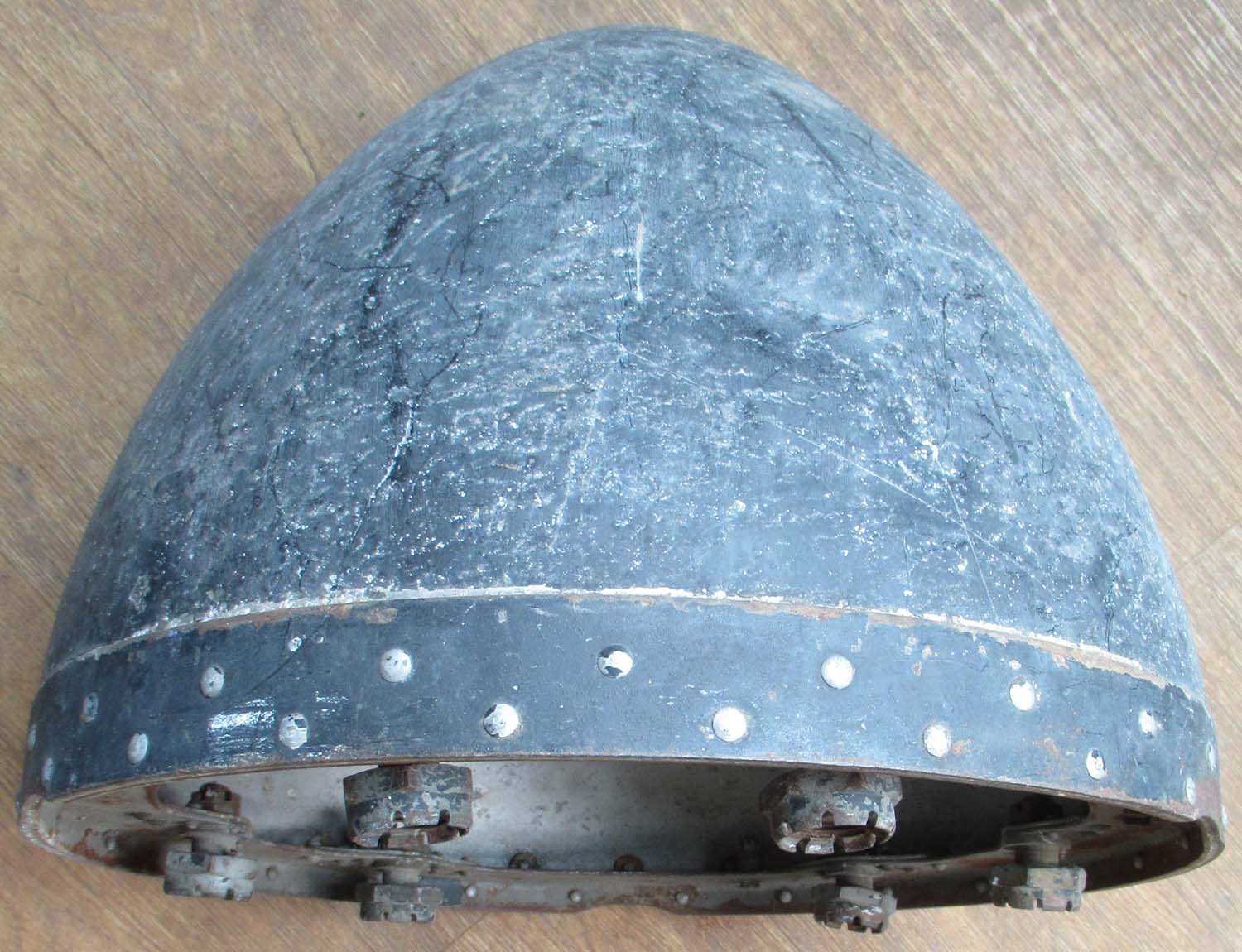
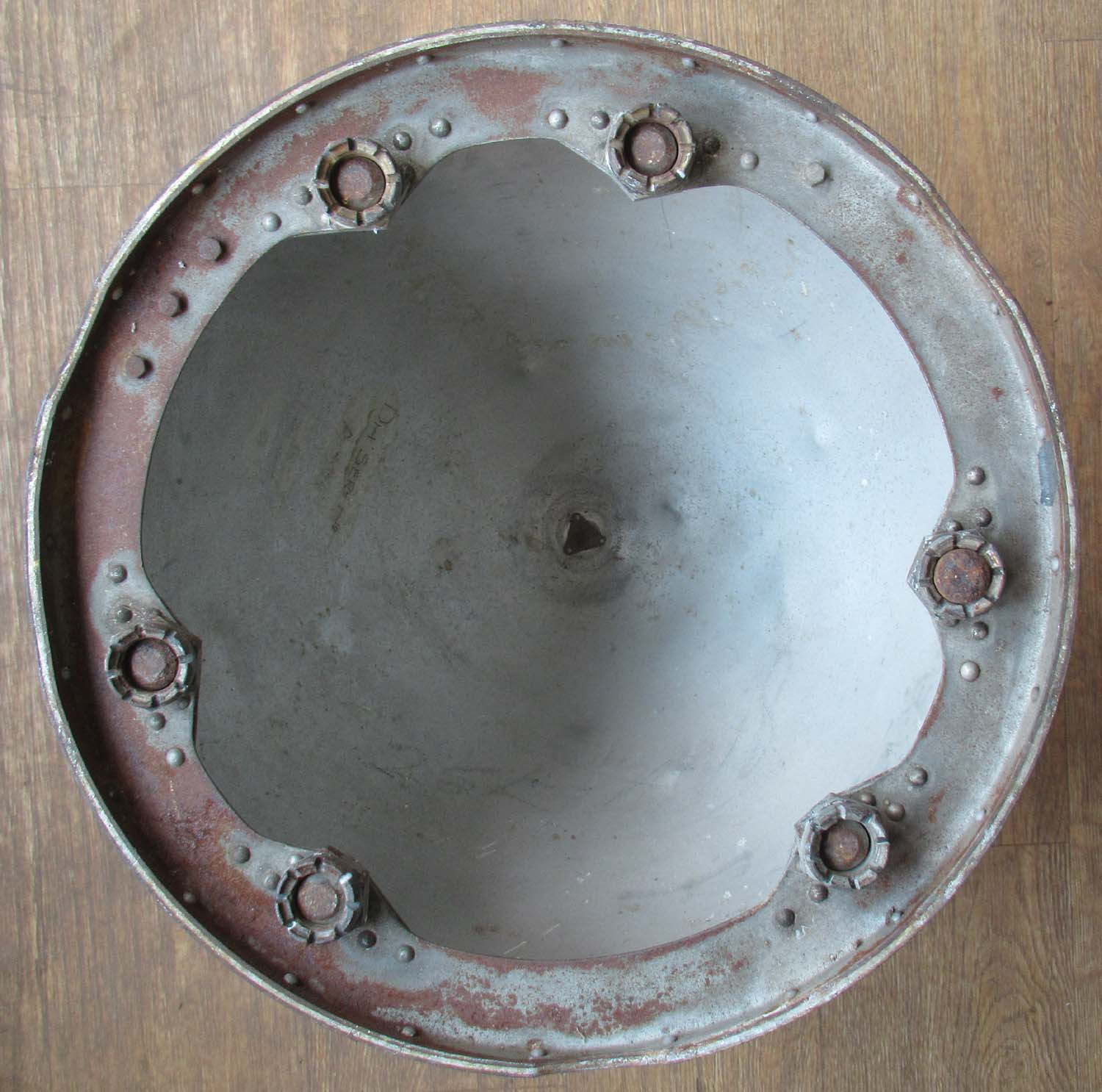
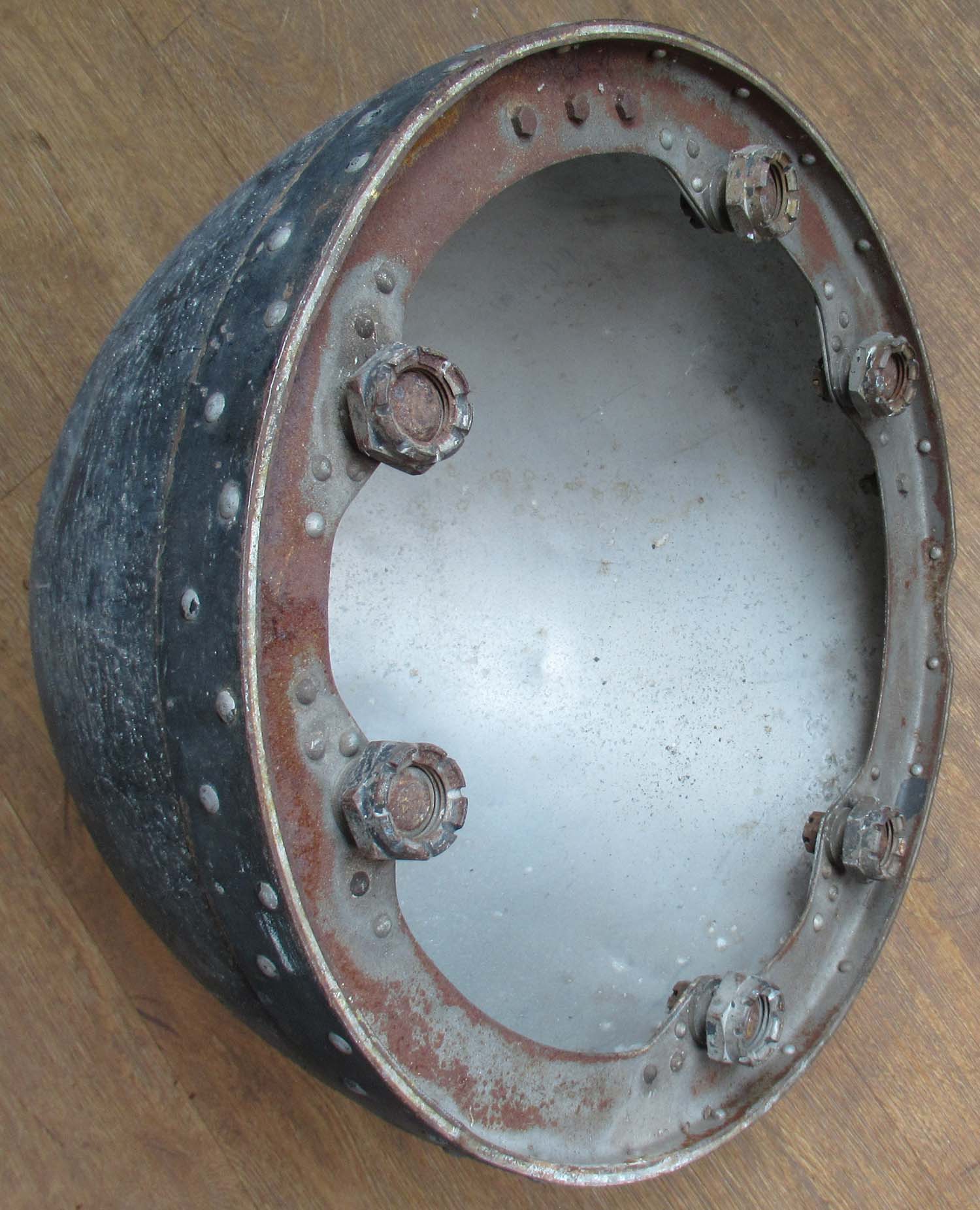
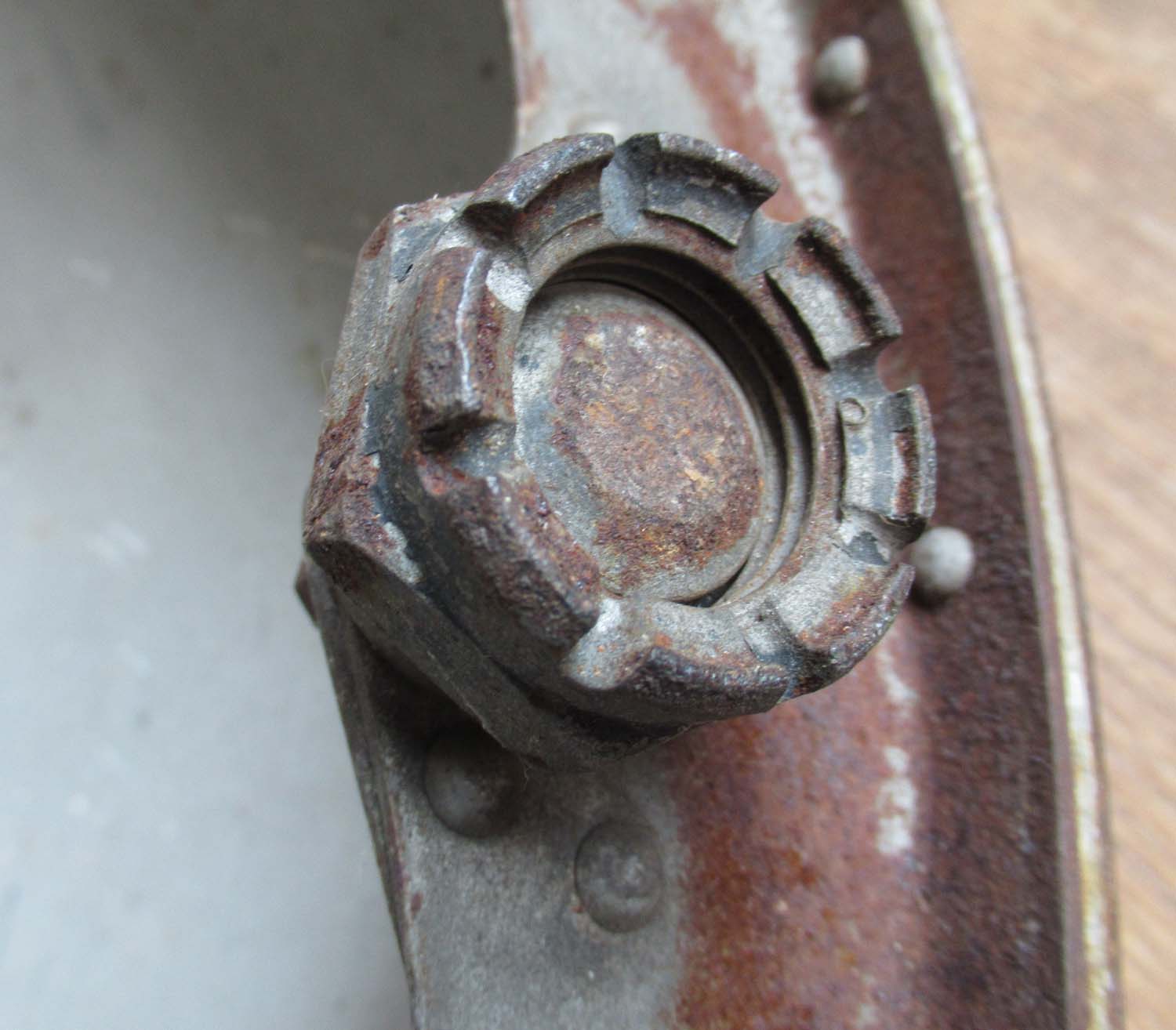
£1195


|
|
Click on pictures to enlarge
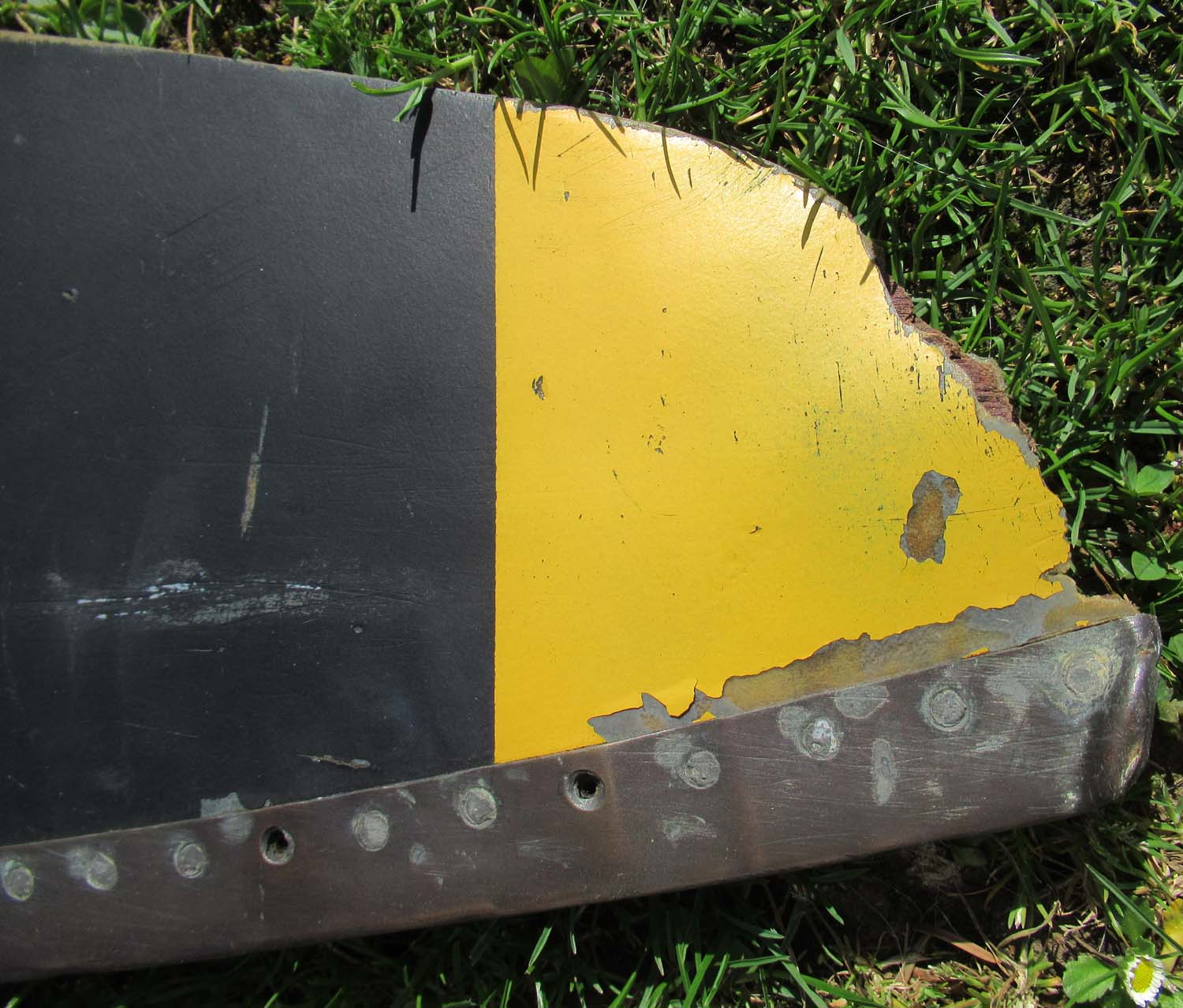
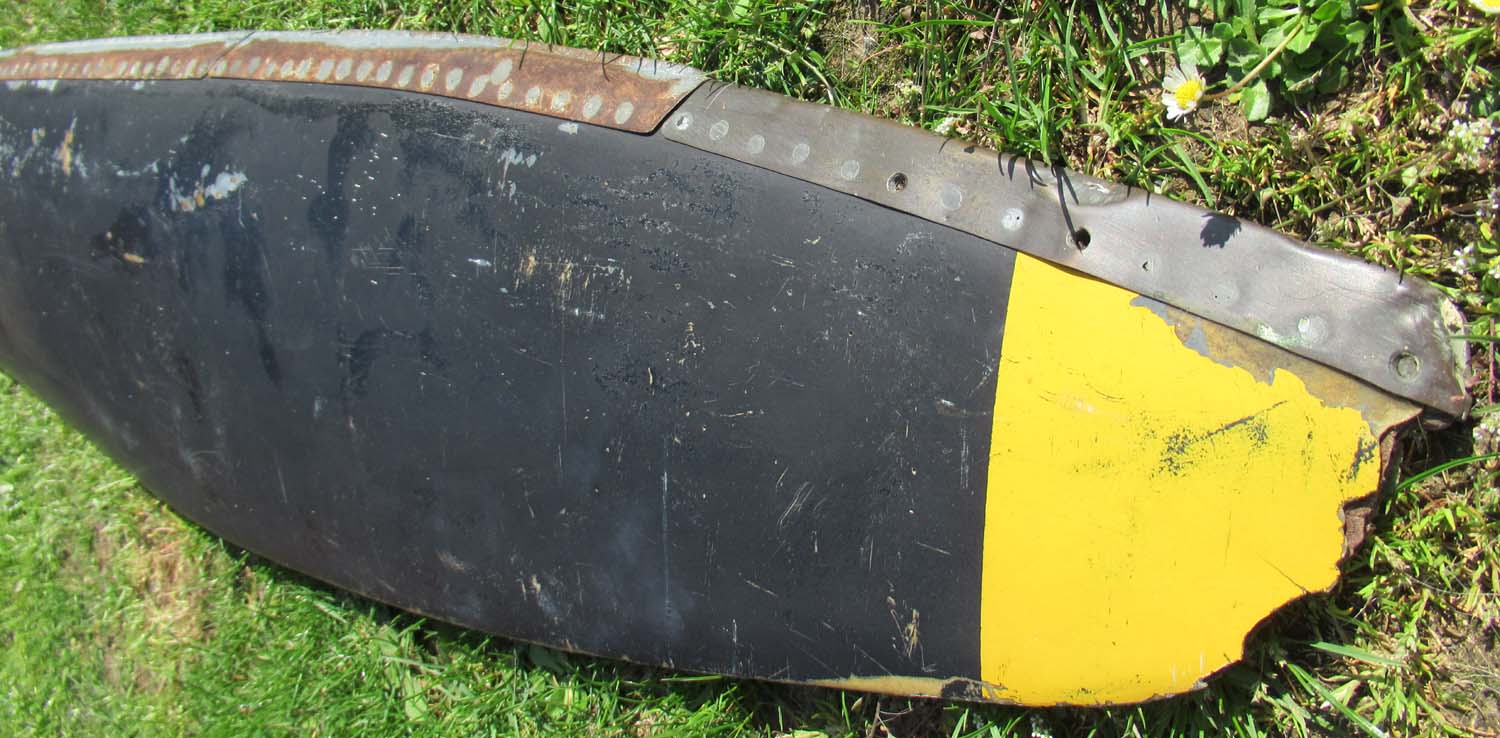
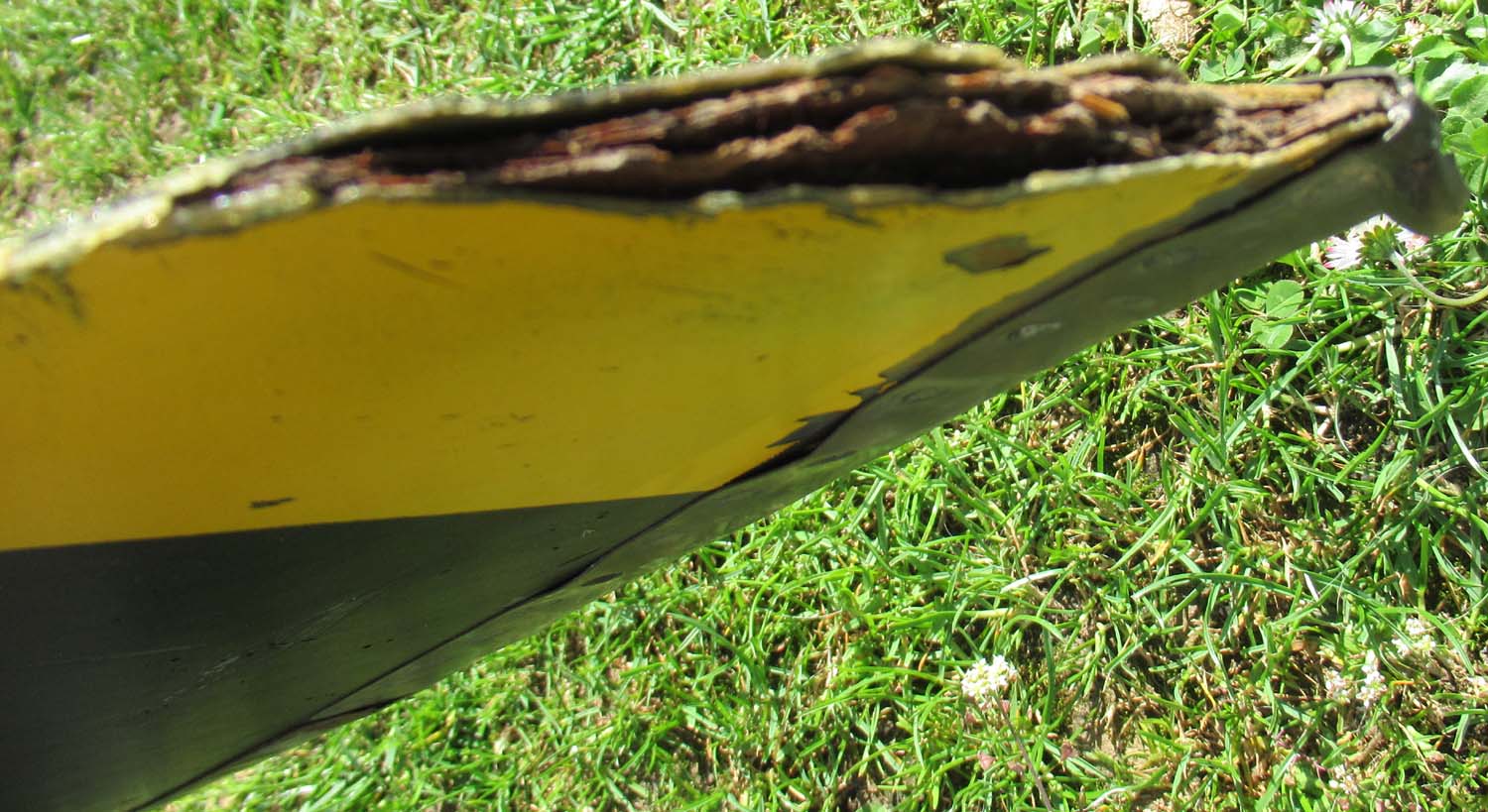
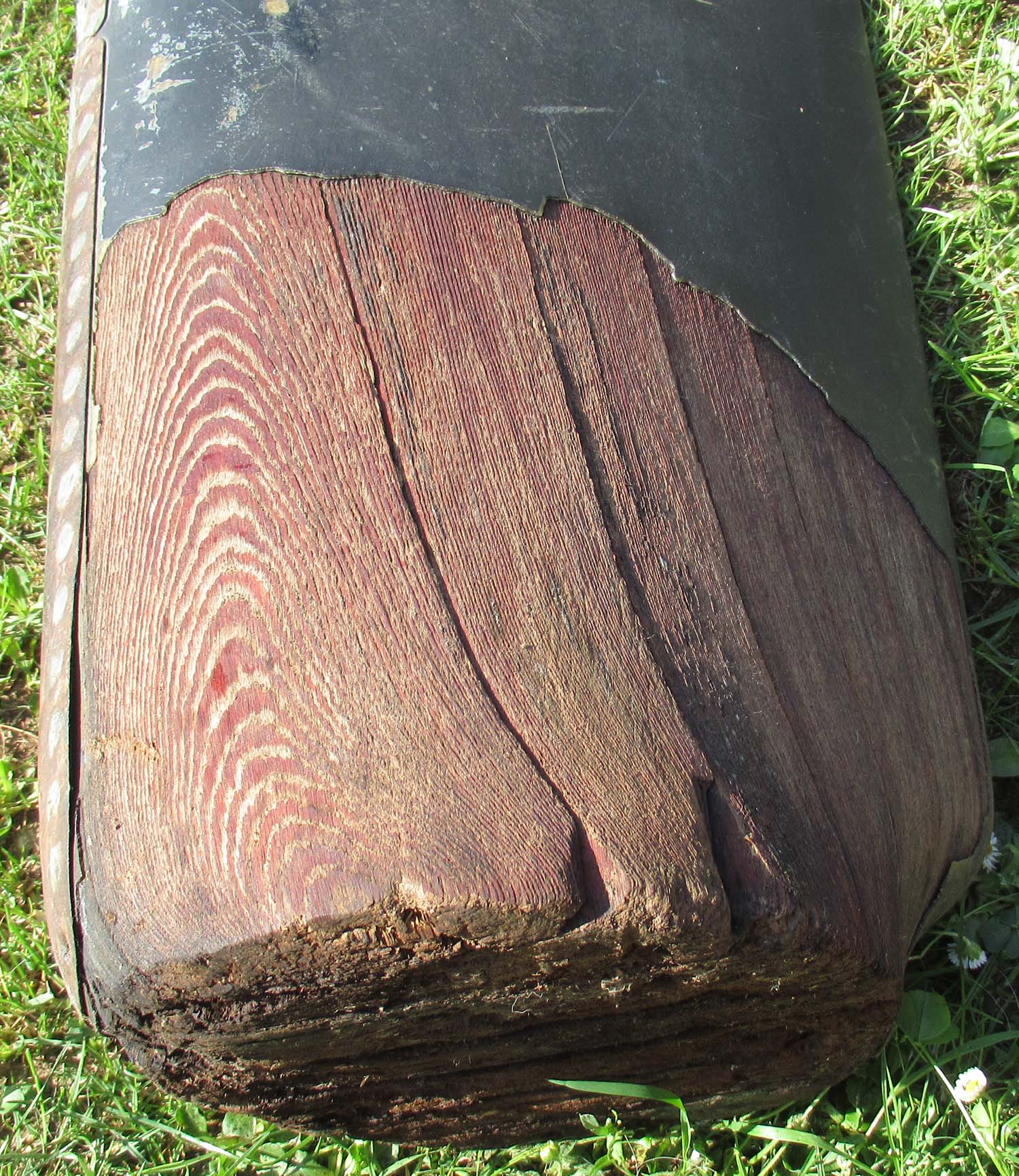
|
Lancaster Propeller (No 10 pg
1 Prop)
As the
base is missing and there are no identification marks its
very hard to identify this blade 100% , but from looking
closely at the profile and size I believe this from be from
a Lancaster. Although it has some damage its still a
substantial piece and would look great displayed.
Approximately 166 cm in length.
Click on pictures to enlarge

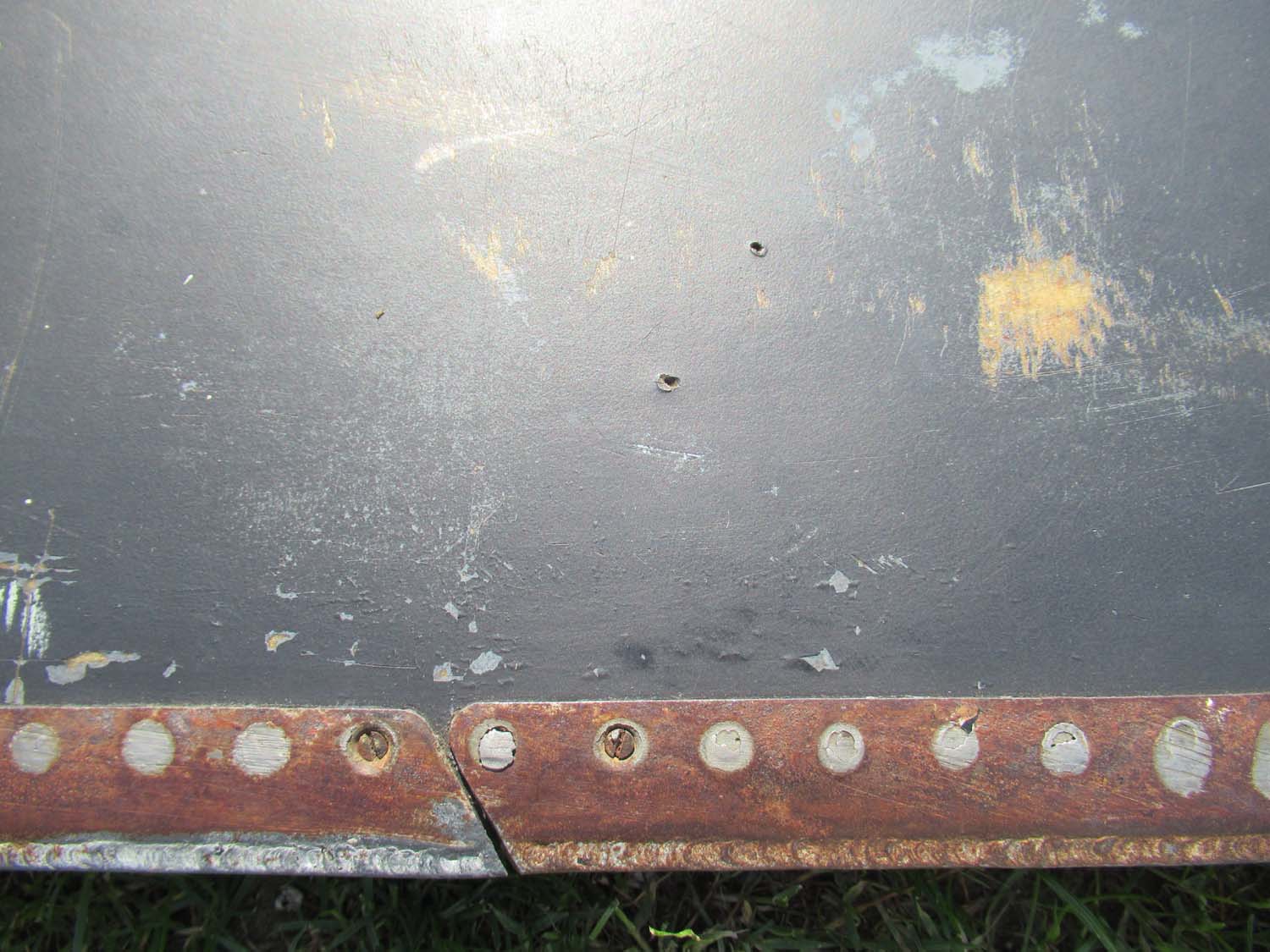

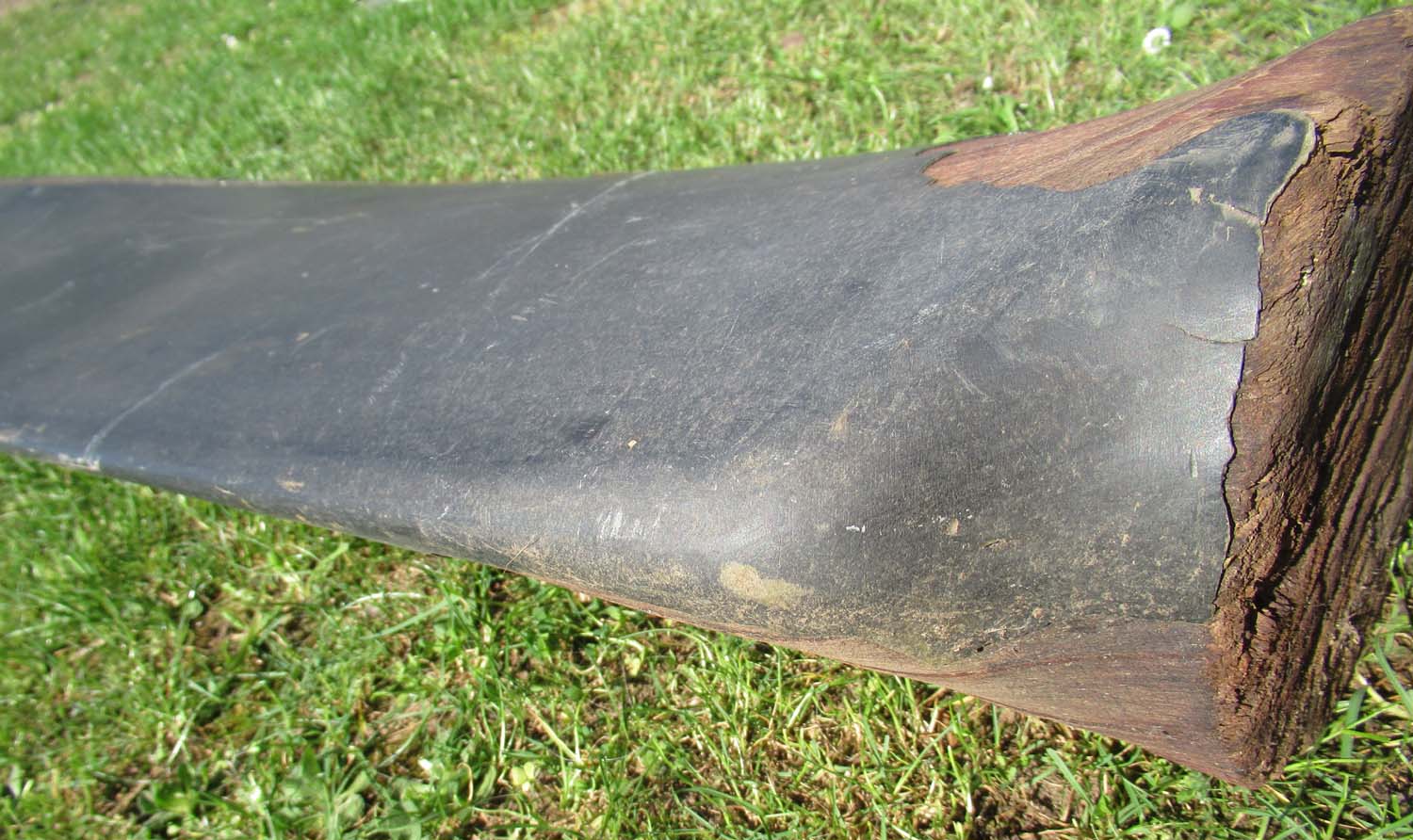
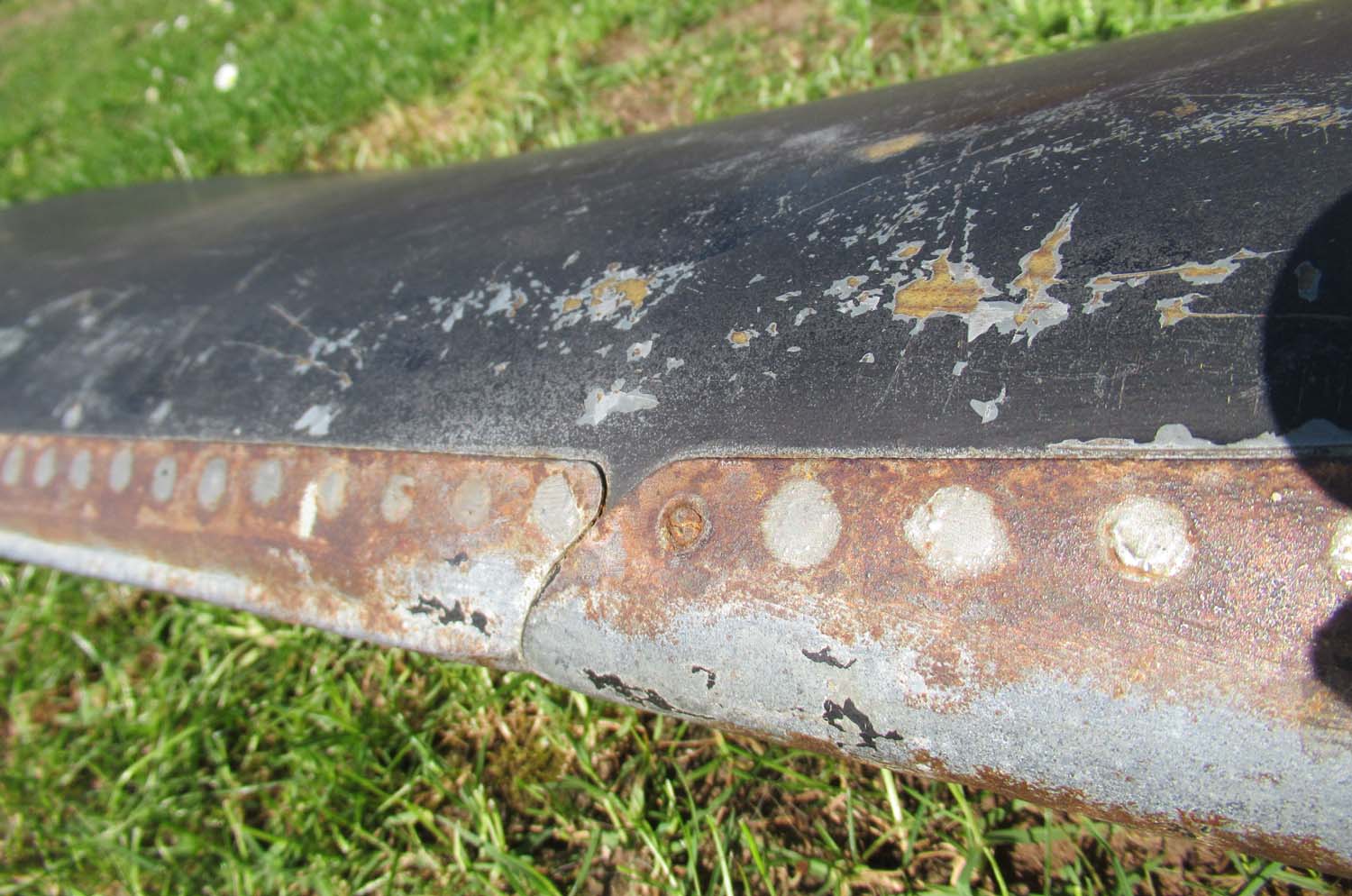
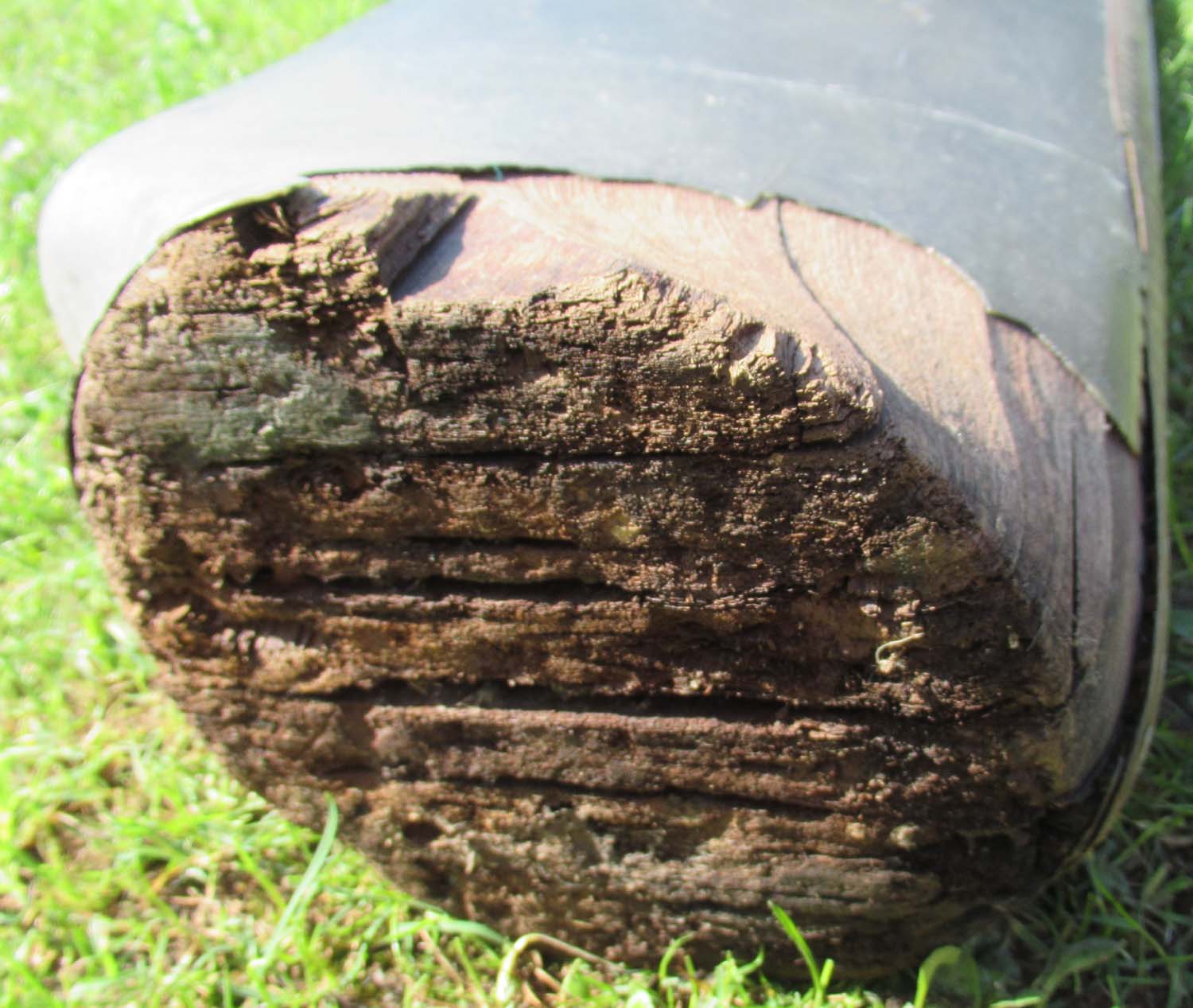
Out of stock
more required, please
contact me
|
|
Click on pictures to enlarge


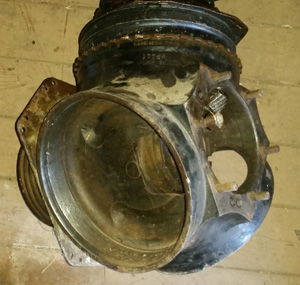
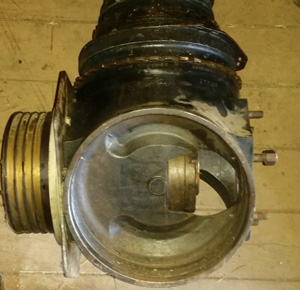

|
Bristol Hercules
Wellington
Propeller Hub and Blades (No 8 pg1
prop) Here we have an complete propeller
and hub for a Bristol Hercules Engine.
The Part Number DB739 on the propeller blades shows that
it would have been used on the Bristol Hercules VI, IX, XVI and XVII engines
that were used on the Wellington, Marks III, IX, X, XI, XII, XIII, XIV. It was
also used on the Lancaster II fitted with the Hercules VI engines.
The hub can be used in other Aircraft
Such as the Bristol Beaufighter, Short Stirling and the Handley Page Halifax
The three blades are in a good overall condition and
do not have any crash damage. One of the blades has a bullet hole which shows
that the aircraft saw action. This was sourced from the Netherlands.
The hub is in a very good condition and could fly again subject to the required
checks.
Click on pictures to enlarge
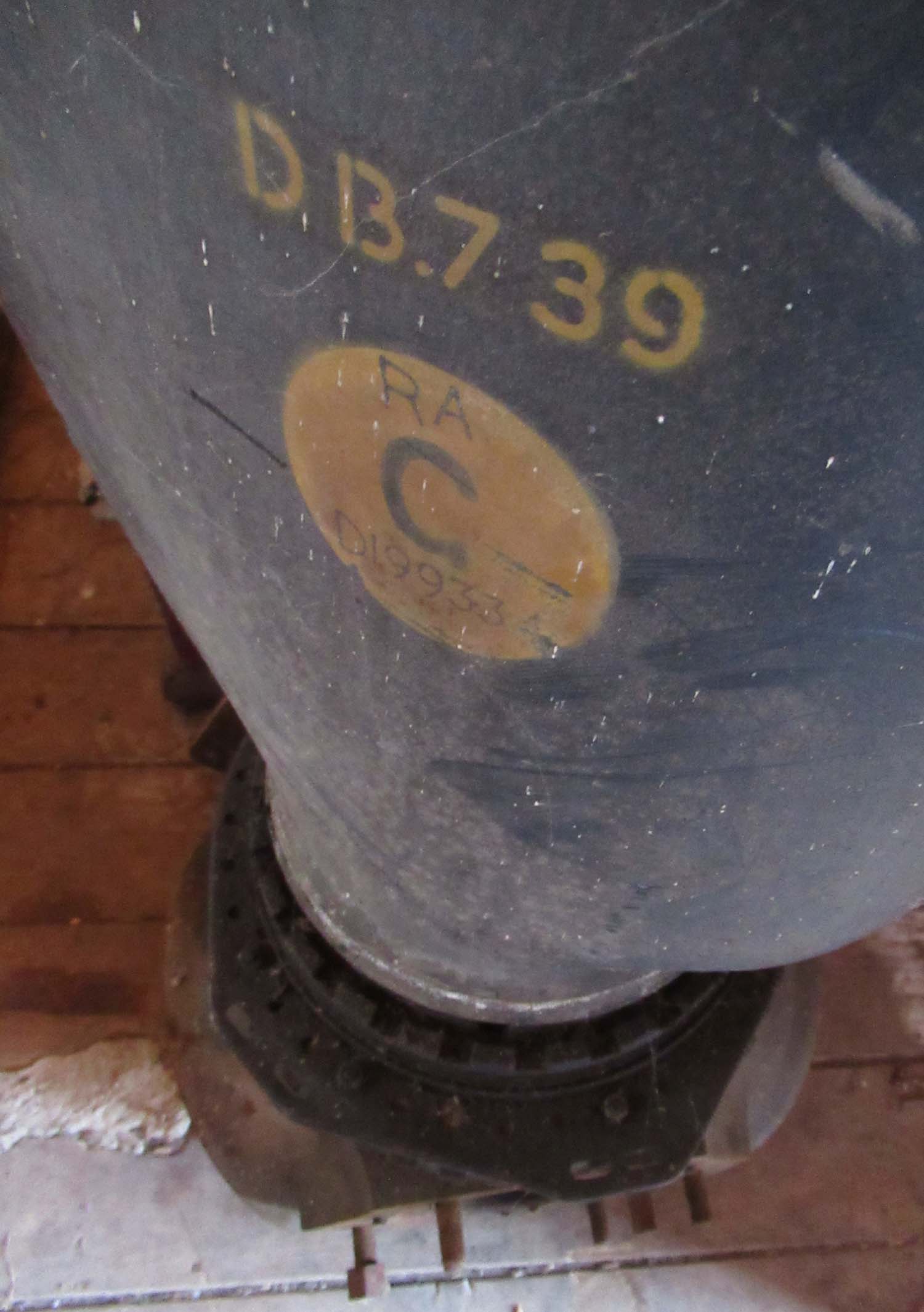
Propeller Pitch control
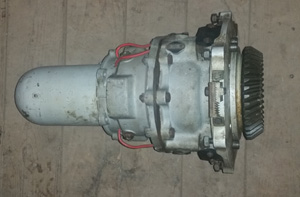
Blade Nos 1


Blade Nos 2


Blade Nos 3


This is clearly heavy and large potential buyers please
contact me
for a shipping quote
£7000


|
|
Click on
pictures to enlarge
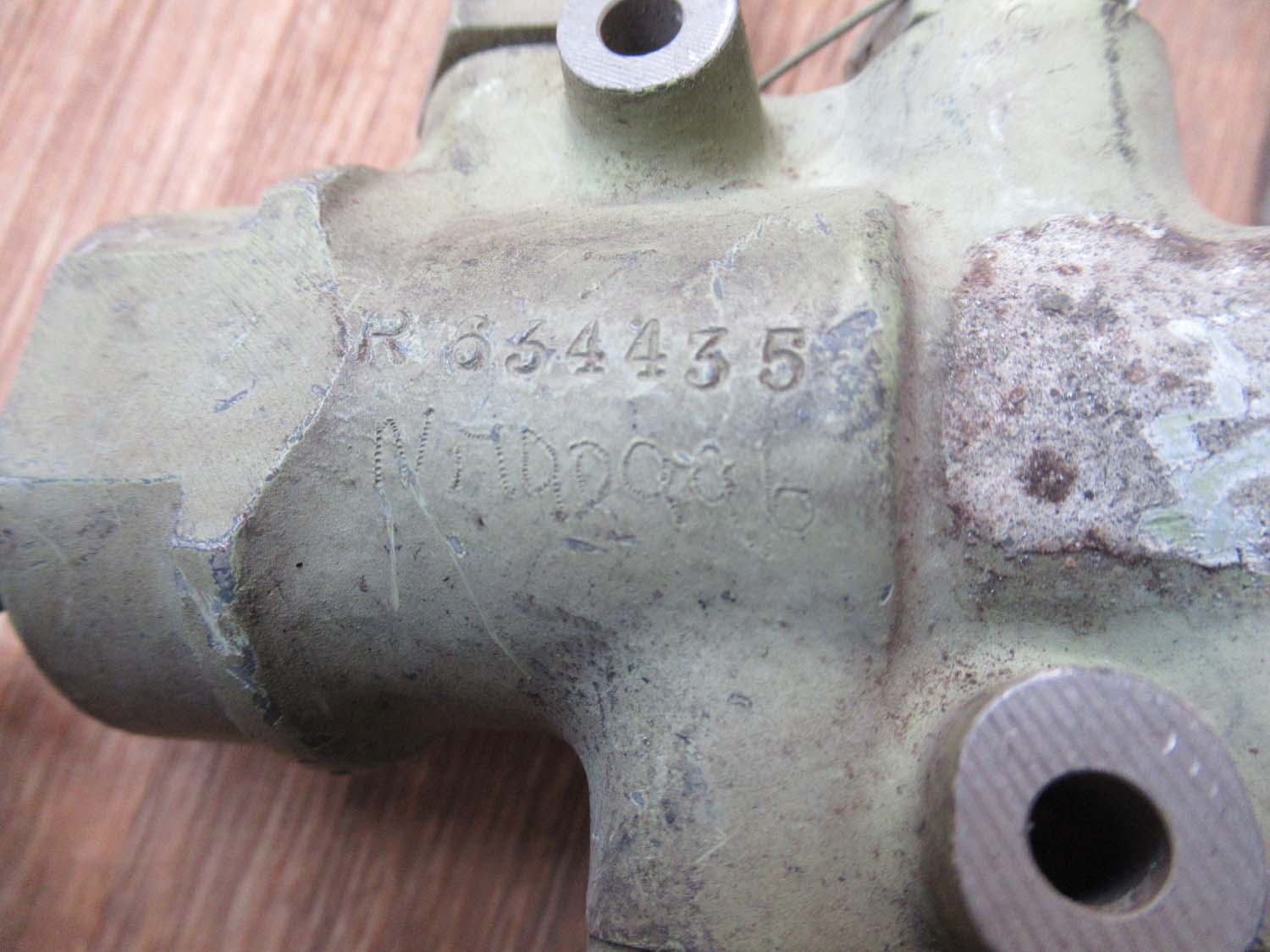
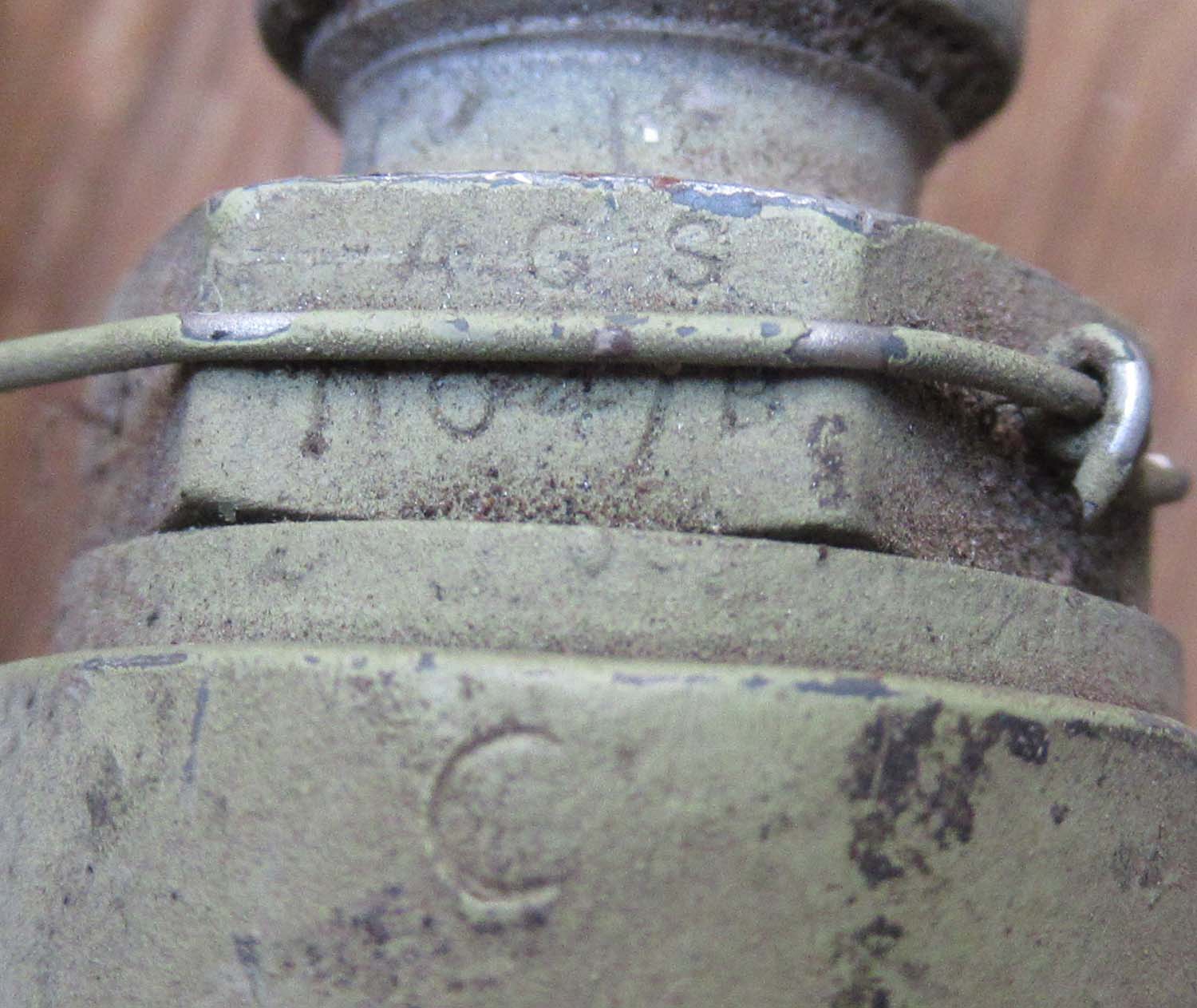

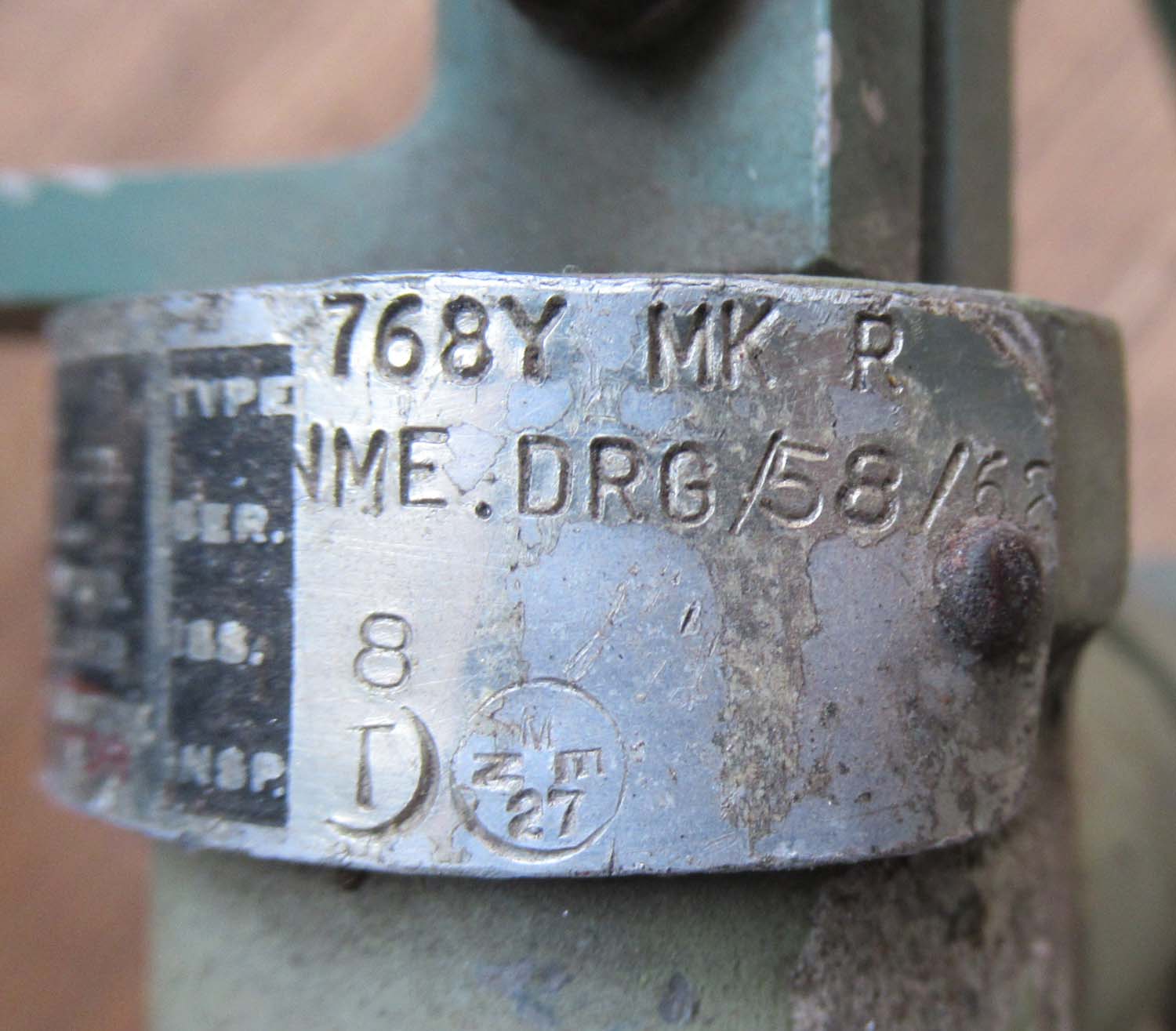

|
MK R Pre Selector
Gear (No 7 pg1 prop)
Here we have a pre selector
gear.... by Dowty Rotol Ltd.
768Y
U71
R634435
CF802Y1
AGS904/C
NME.DRG/58/62
B40677/2
Click on
pictures to enlarge
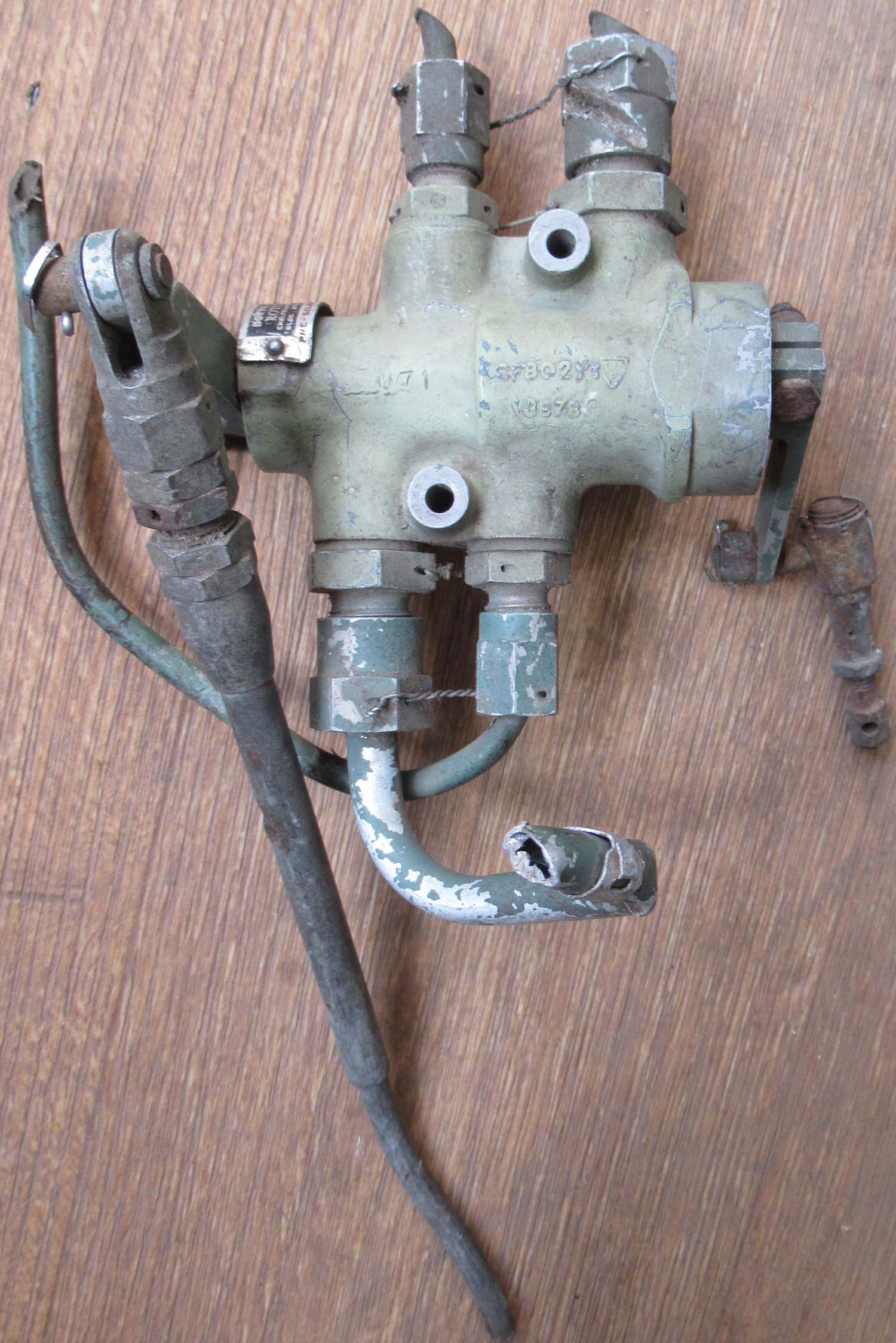


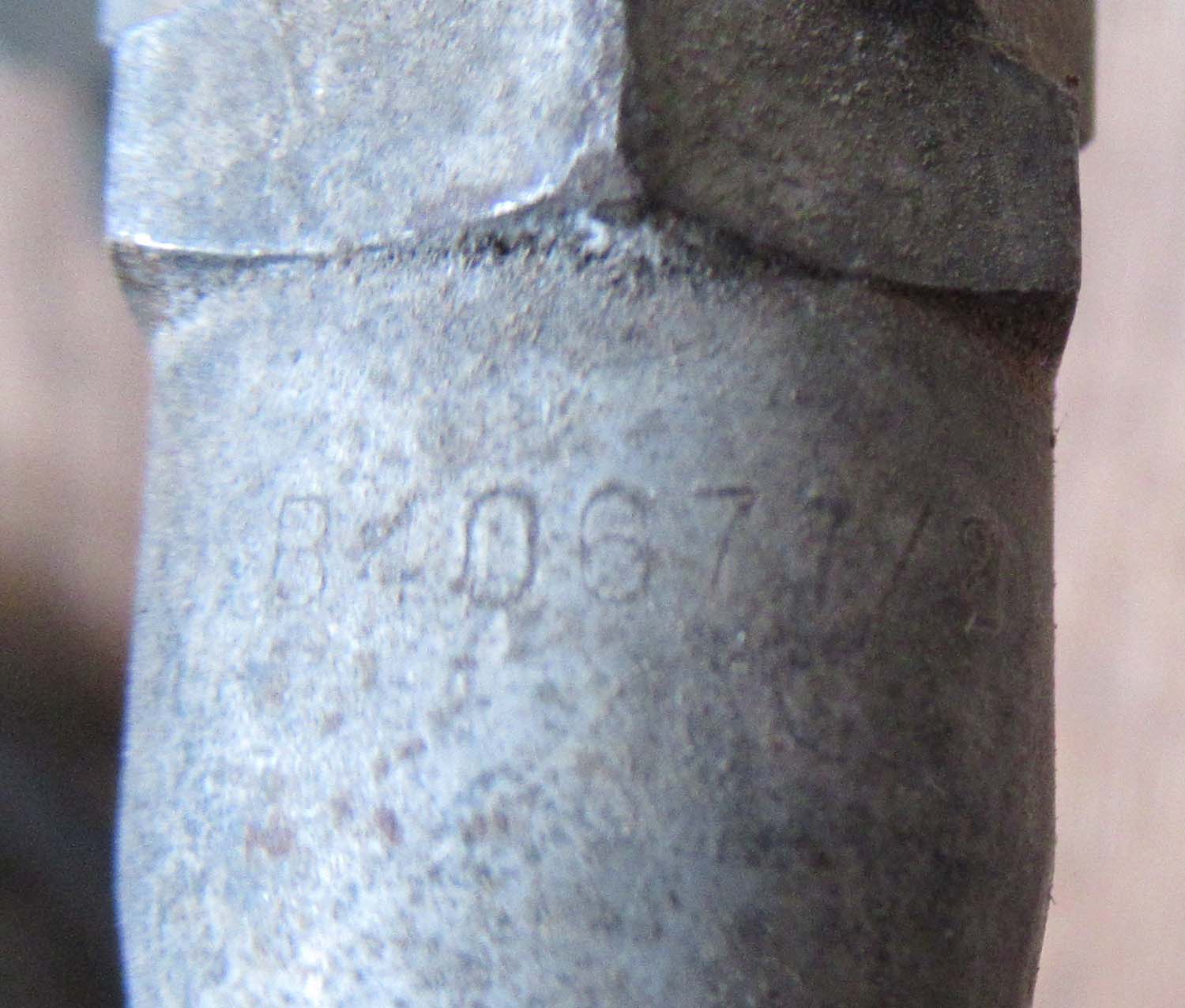
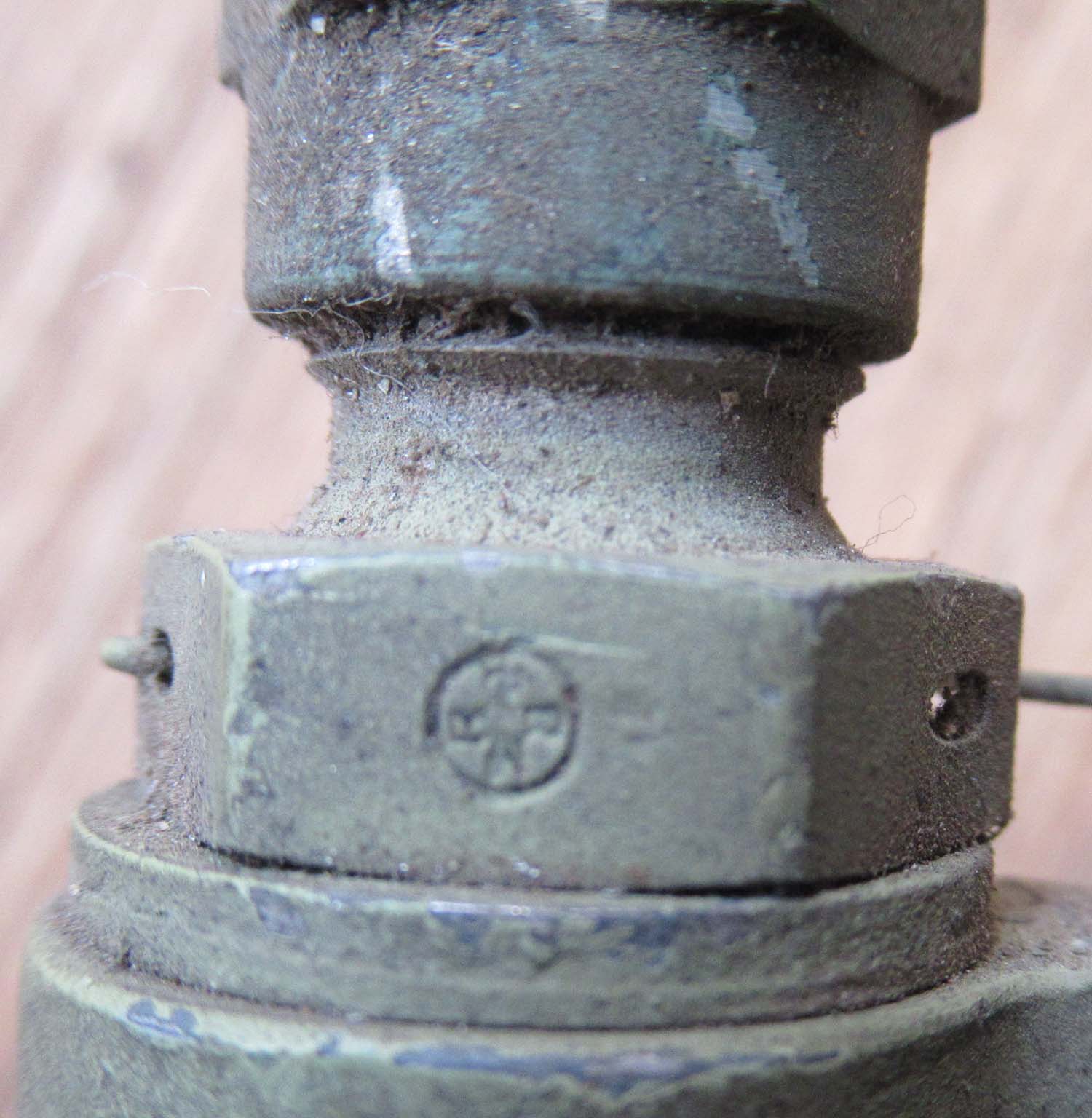

£150


|
|
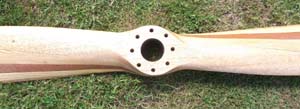
Click on
the picture's to enlarge.

Seen under
the Armstrong Siddeley Genet Aero Engine
 |
Genet Major Propeller
(No 6 pg1
prop)
This is a superb propeller
made by us as a perfect copy of the original. Our method of
construction clones these propellers from an original. It is
made of Ash and European sustainable mahogany. This
propeller was almost entirely made by hand and take over 10
days to complete.
Although made
to original specifications we cannot certify these for
flying and if so used you would have to carry out the
required checks to comply with the law.
The original dates from the
1930's and was used on the
Armstrong
Siddeley Genet Major
a British five-cylinder (later seven-cylinder), air-cooled,
radial engine for aircraft, designed and built by Armstrong
Siddeley and
first run in 1928. It developed 140 horsepower (104 kW).
Used in a variety of 1930's
aircraft including Avro's and Westland.
No shipping has been added to
the cart and costs will depend where it needs to be sent.
Please contact me for a
shipping quote.
£475


|
|
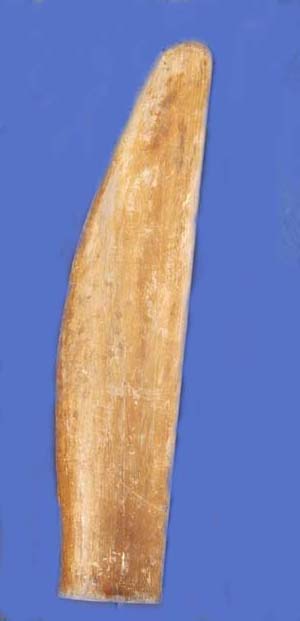
Click on
the picture to enlarge. |
WWI RFC Prop blades
(No 5 pg1
prop)
Here are original prop
tips from WWI, the boss has been cut out probably to make up
a display for a clock. Great display pieces. The second one
available is an exact clone of the blade shown.
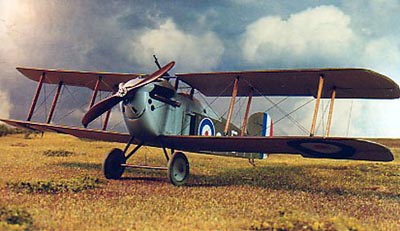
£100 each two available.


Apply for a
postage quote before purchase by
Contacting Us.
|
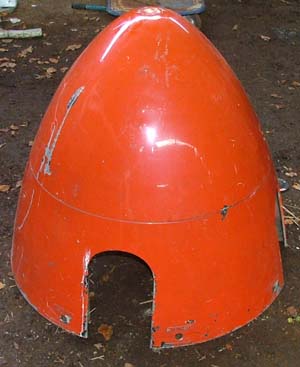 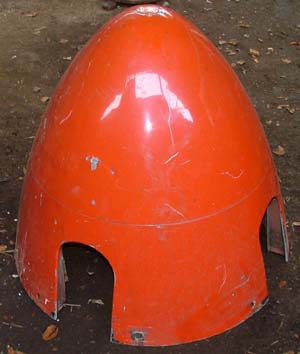
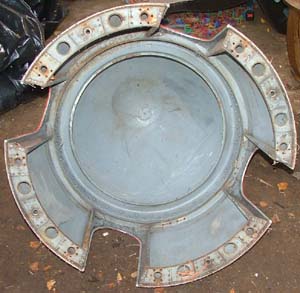 |
Vickers Varsity four Blade Spinner (No
4 pg1 prop)
This is a massive spinner
from a Vickers Varsity, its an imposing piece of History from
one of the RAF's last piston powered aircraft.
The Varsity was a versatile
twin piston-engine aircraft brought into RAF service in 1951
for crew training as a replacement for the Wellington T10.

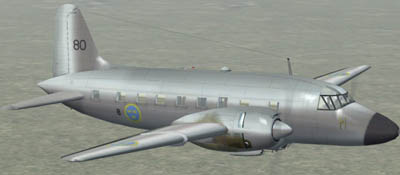
The aircraft had been designed three years earlier in
response to an Air Ministry specification and had been put
into production once proving trials and operational tests
had been completed. To adapt the successful Valetta design
for a general purpose crew trainer, the Varsity was given a
nose-wheel undercarriage and an under fuselage pannier
bomb-aimerís station.
The most outstanding quality of the Varsity was that it
could provide excellent training for pilots, flight
engineers, radio operators, navigators and bomb aimers
simultaneously. The latter were seated in a very large
ventral gondola which contained bomb aiming equipment and a
small quantity of training bombs.
The prototype Varsity T MkI made its maiden flight on 17
July 1949. The RAF took its first deliveries in October 1951
which went to No.201 Squadron, Advanced Flying School at
Swinderby, Lincolnshire. Production of the Varsity T MkI for
the RAF ceased on 28 February 1954 after a total of 163 had
been built.
This aircraft was powered by
two Bristol Hercules engine
£699


|


|
De Havilland Prop hub (No 3 pg1 prop)
Nice condition hub used
on Mosquitoes and other De-Havilland aircraft.

£850


|

Click on the pictures to enlarge
 |
Watts Propeller (pg1 prop)

This is a Watts propeller. This type of
propeller
was used on very early Spitfire's the protype, Mk1 and
Hurricane Mk1 in very limited numbers. They were soon
replaced by the three bladed variable pitch props. I believe
this type of prop was fitted to the late 1930s fighters such
as the Gladiator. Hand
made using
traditional methods
by our craftsman. They are marked correctly with period
stamps. We only use good quality Ash and Mahogany. I do not
like to call it a repro or copy as it does not do it justice
and suggests they are somehow inferior to the ones produced
in the early 1930s which it is not. It is made to original
specs and identical in every way to the ones made 70 years
ago, using the same labour intensive techniques. The
laminate's are locked using dowels and
traditional glue.
It took our craftsman 10 days to make this awesome
propeller. They are not massed produced. We have a large
inventory of Propeller's. We can produce props to your
specification in materials and glue if you wish to get them
approved for flying. This one is balanced but for sale as
DISPLAY ONLY






£1500 Made to order
|
|
Click on the
Pictures to Enlarge

Click on the
Pictures to Enlarge
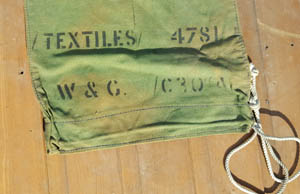
|
Original canvas prop blade covers (No 2 pg1 prop)
These are for big props measuring
6ft long by 13 1/2 inches at their widest they are used and
have age related marks and fading but in serviceable
condition I have seven available one has a small hole but
this one will be sold last and you will be informed if its
the only one left.
Click on the
Pictures to Enlarge

£ 35
each


|

Click on the Pictures to Enlarge |
BF108/Nord1101 Metal Propeller (No 1 pg1 prop)
This Metal propeller was fitted to a Renault 6Q-10
Engine as Used in the Nord 1101
The Nord 1101 began its life as a
development of the German Messerschmitt Bf-108, a four-seat,
tail-wheel liaison and communication aircraft. Nord modified
the design to a tricycle gear version and built two
prototypes. After the war the original Argus inverted V-8
was replaced by a 6-cylinder inline Renault and was renamed
Nord 1101. The parts handbook lists one third German
Messerschmitt part numbers, one third French Nord while the
remaining are French suppliers numbers. The Nord 1100 was a
fine and fast machine, pleasantly light on the controls
which were well matched, efficient and accurate. It was a
pilots airplane, requiring permanent and precision flying.
The
company produced the re-engined version with a Renault 6Q-10
engine as the Nord 1101. The 1101 was designated the Ramier
by the French military, In English it was known as
the Woodpigeon
Two hundred and
five were built for civil and French military use .
RAF Aldon impressed
four Bf 108s on the outbreak of World War II and put into
service, who designated them "Messerschmitt Aldon". It was
the fastest light communications aircraft the RAF had then,
but they were often mistaken for Bf 109s. Post-war, 15 more
captured Bf 108s flew in RAF colours
Click on the Pictures to Enlarge
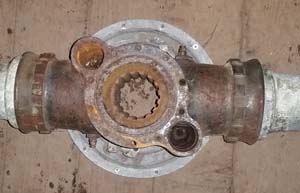
Click on the Pictures to Enlarge
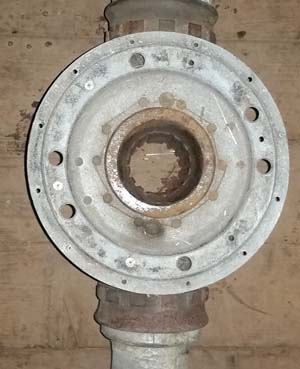
Nord 1101 Ramier
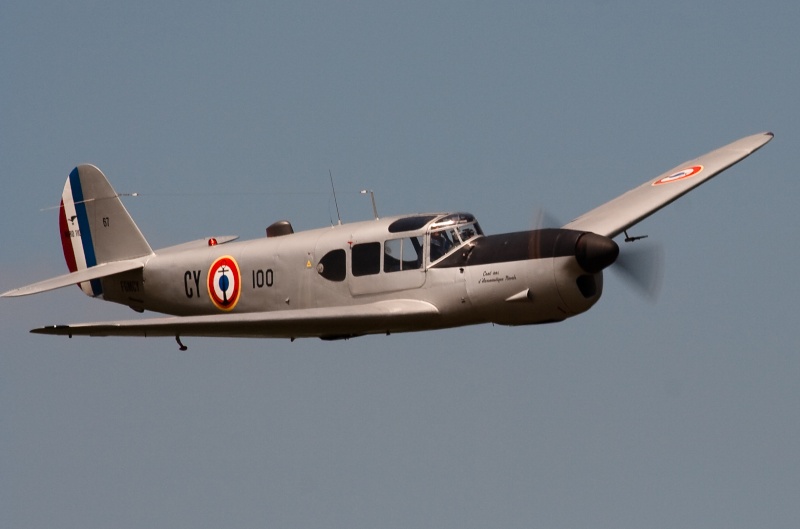
£800


This Propeller is very Heavy and will
be sent at cost
Please Contact us for postage quotes
|
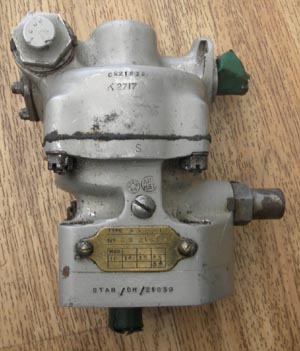

 |
CSU Unit Standard DH Prop (cont pg3 SP)
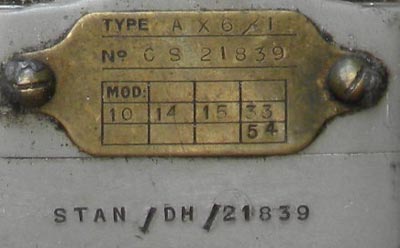

This is a constant speed unit
which controls the pitch of the prop. This particular model is
in excellent serviceable condition subject to the required
checks.
This unit is designed
to operate the De Havilland standard prop. This Propeller was
used in a variety of aircraft including the Mosquito.
find this in the
control section
|
Click on the picture's to
enlarge Click on the picture's to
enlarge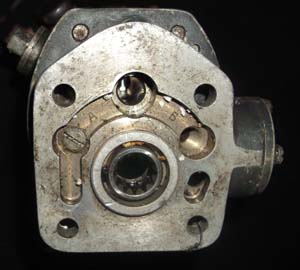
Click on the picture's to
enlarge
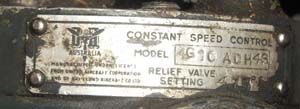
Click on the picture's to
enlarge

|
DH
Australia Constant Speed Control Unit 2 (pg5 cont)
Here we have
a Constant Speed Control Unit
This was
Manufactured By DeHavilland Australia
Model:
4G10ADH46
Set to 475
PSI
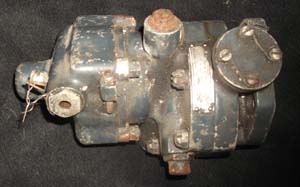
An aircraft
propeller operates as the source of thrust that moves the plane
forward.
When an aircraft is
stationary with the propeller spinning (in calm air), air flows
past the narrow leading edge of the propeller. This is the most
efficient configuration as the drag forces on the propeller are
the lowest. As the airplane starts moving forward, the airflow
begins to push against the front, wider cross section of the
propeller, creating greater drag.
A constant-speed
propeller is able to rotate along the longest axis of the blade
to take a sharper bite of air with respect to the airplane,
allowing the propeller to maintain the most efficient
orientation to the airflow around it. This balances the trade
off that fixed-pitch propellers must make between high take-off
performance and high cruise
performance.
A
constant-speed unit (CSU) or propeller governor is the device
fitted to one of these propellers to automatically change its
pitch so as to attempt to keep engine speed constant.
find this in the
control section
|
|
Click on pictures to
enlarge
 |
Hurricane Propeller Blade (pg1 prop)
NOW SOLD
Hurricane Propeller Blade (pg1 prop)
Here we have a superb
Propeller Blade from a Hurricane in good original condition with
part of the Hub assembly it measures 5Ft 2" long including
the Hub fitting and 11.5" wide at its widest point. From
looking at pictures it appears to be from a MK II Hurricane.
It has no delimitation or chips. The MK II Hurricane fitted
with a Merlin XX engine came in several variants one of the
most potent being the cannon armed MK IIC . By the end of
the Battle of Britain the Hurricane was finished as a front
line fighter being basically a modified Bi Plane fighter its
airframe unlike the Spitfire was at the limit of its
potential to increase engine power. It did continue to fight
in most of the major theatres of the war including Russia
and the Middle East as a formidable ground attack aircraft
being replaced as an interceptor in Europe by the Spitfire.
23451
23452 23453
Click on pictures to
enlarge


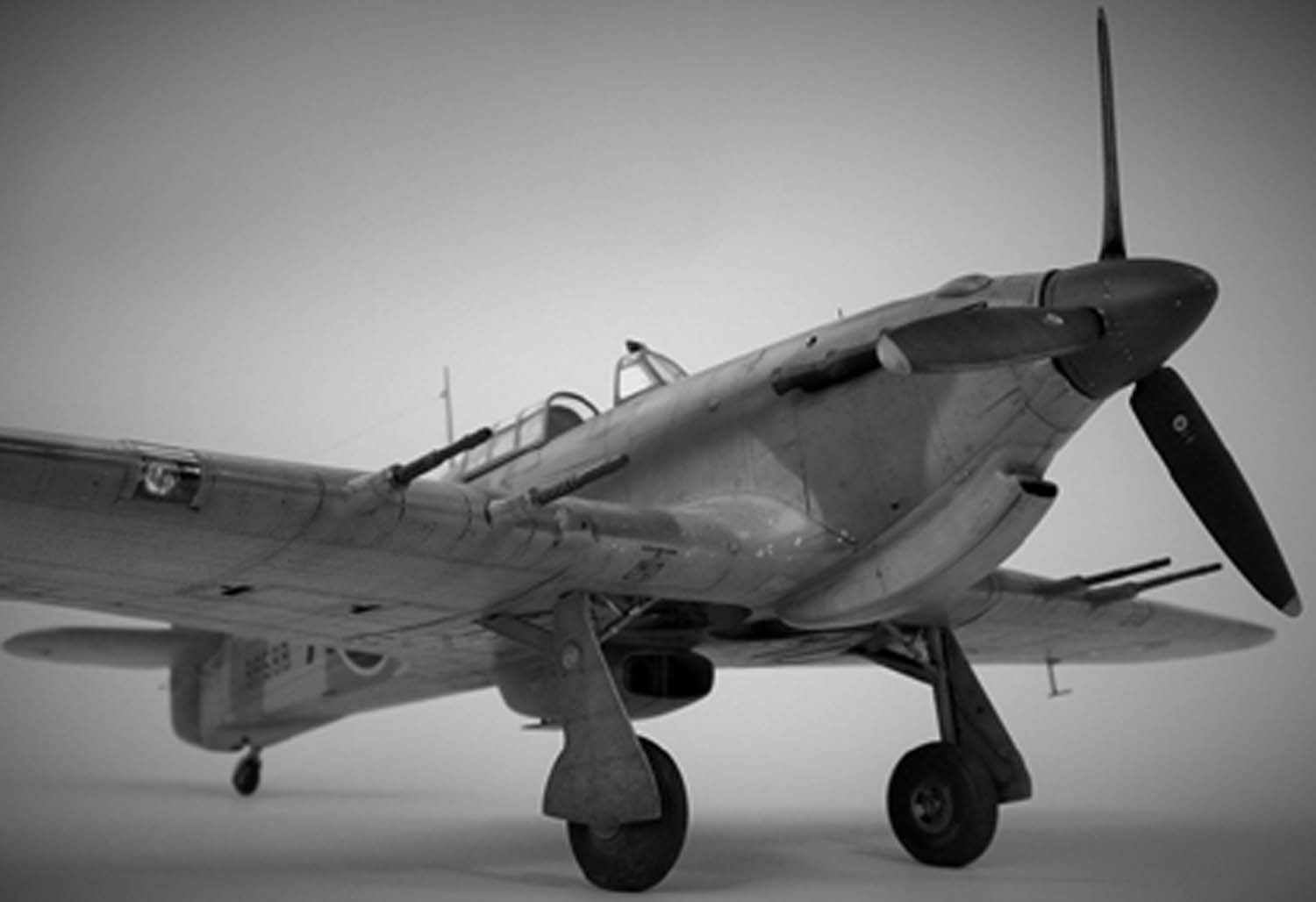
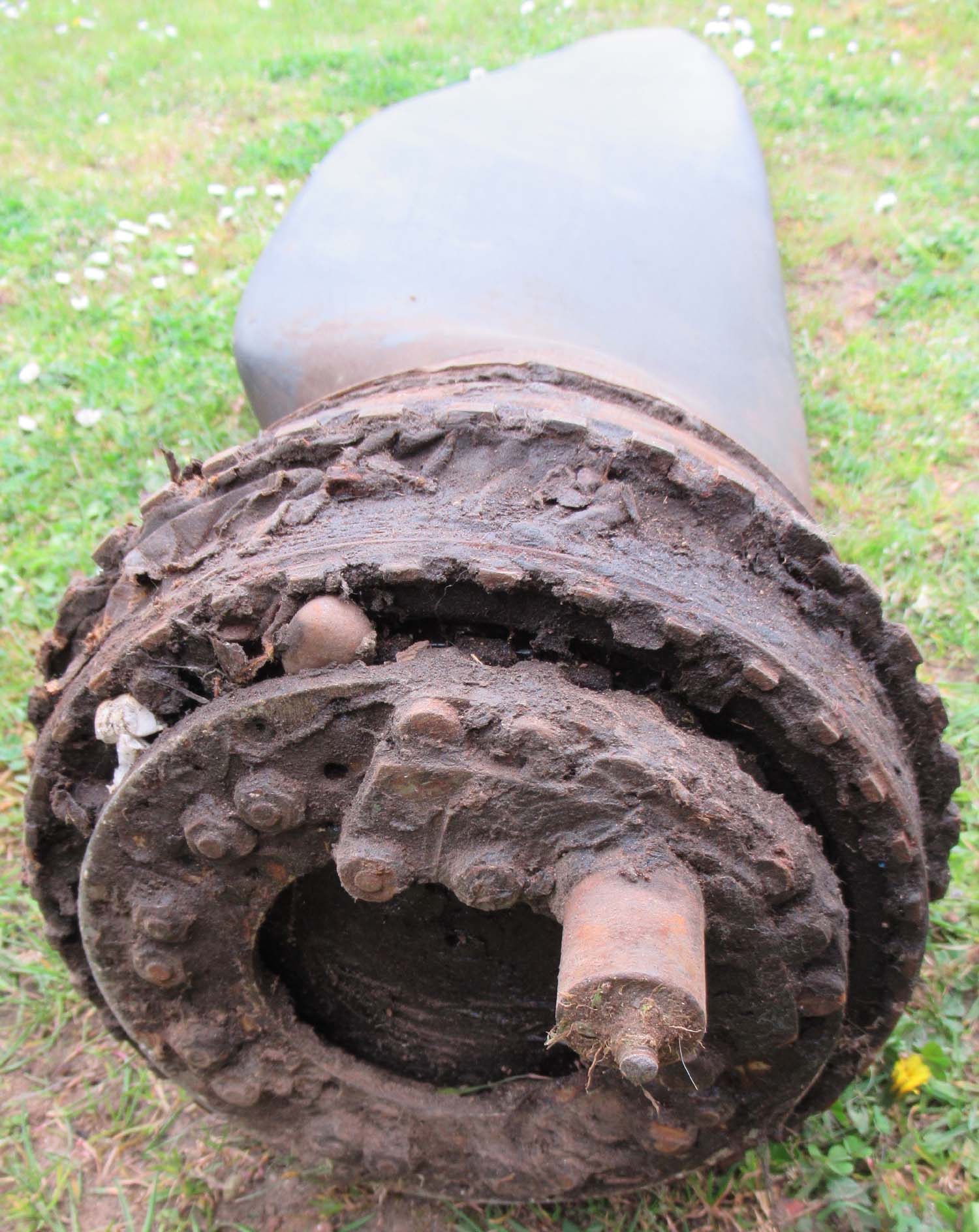
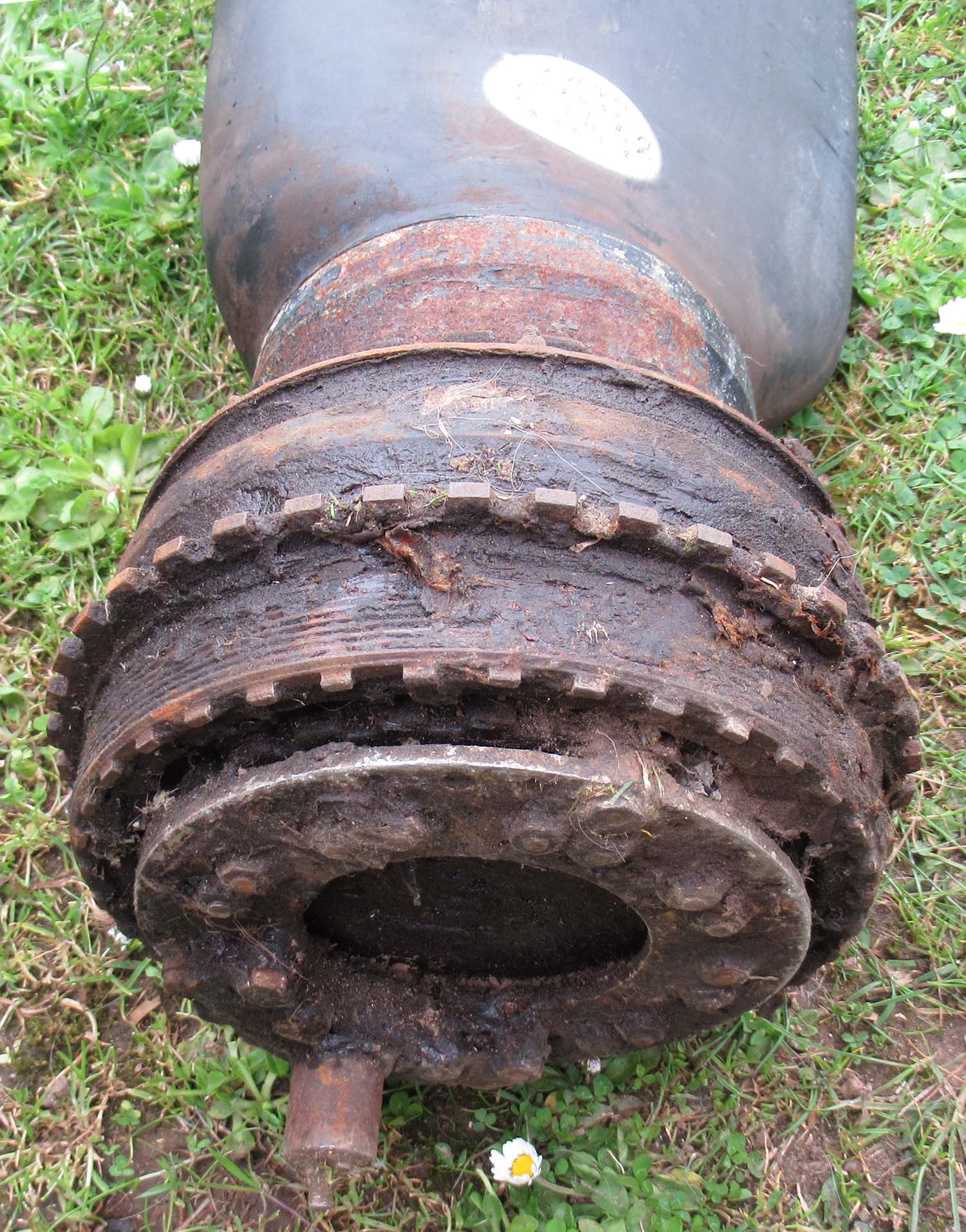
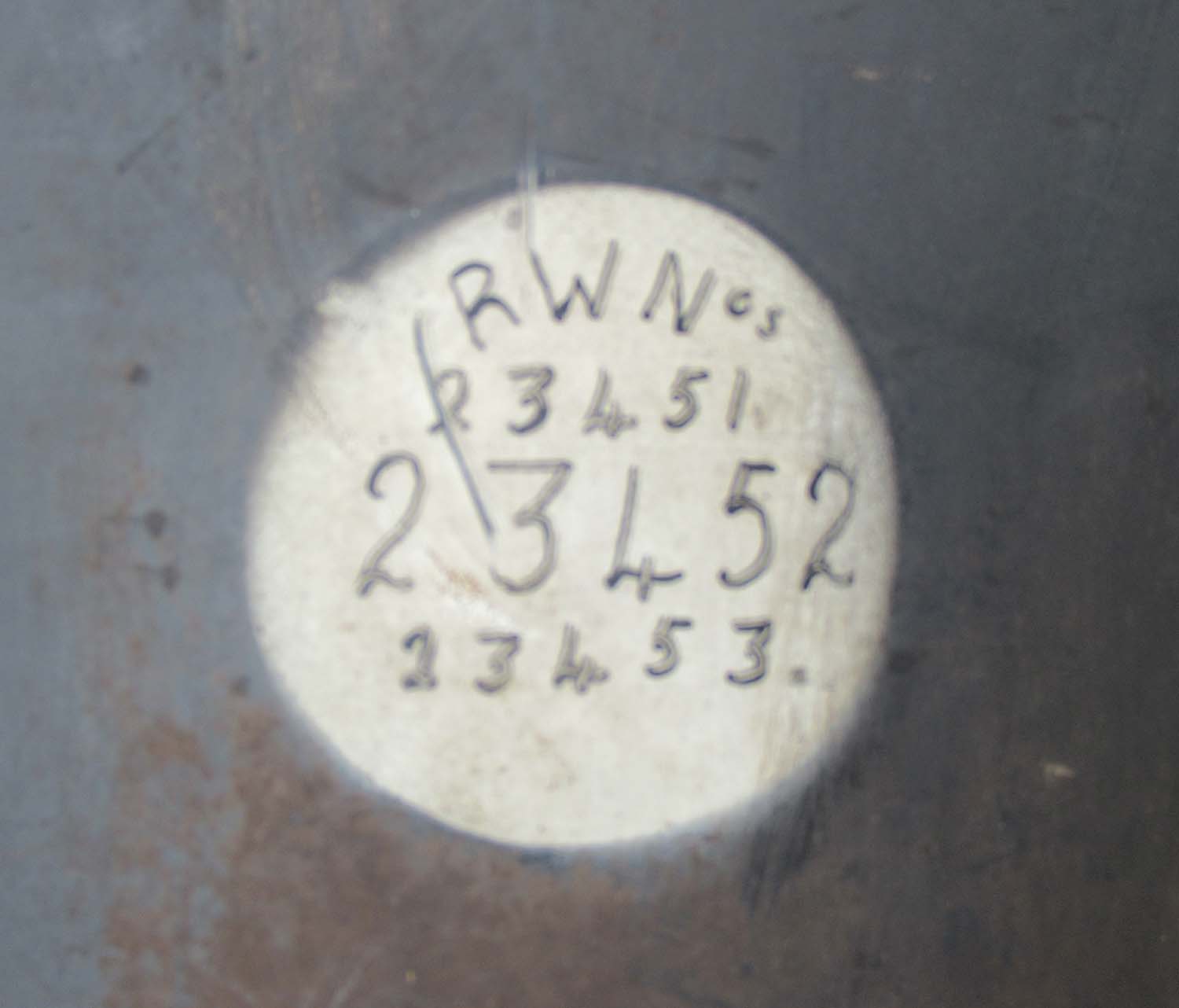
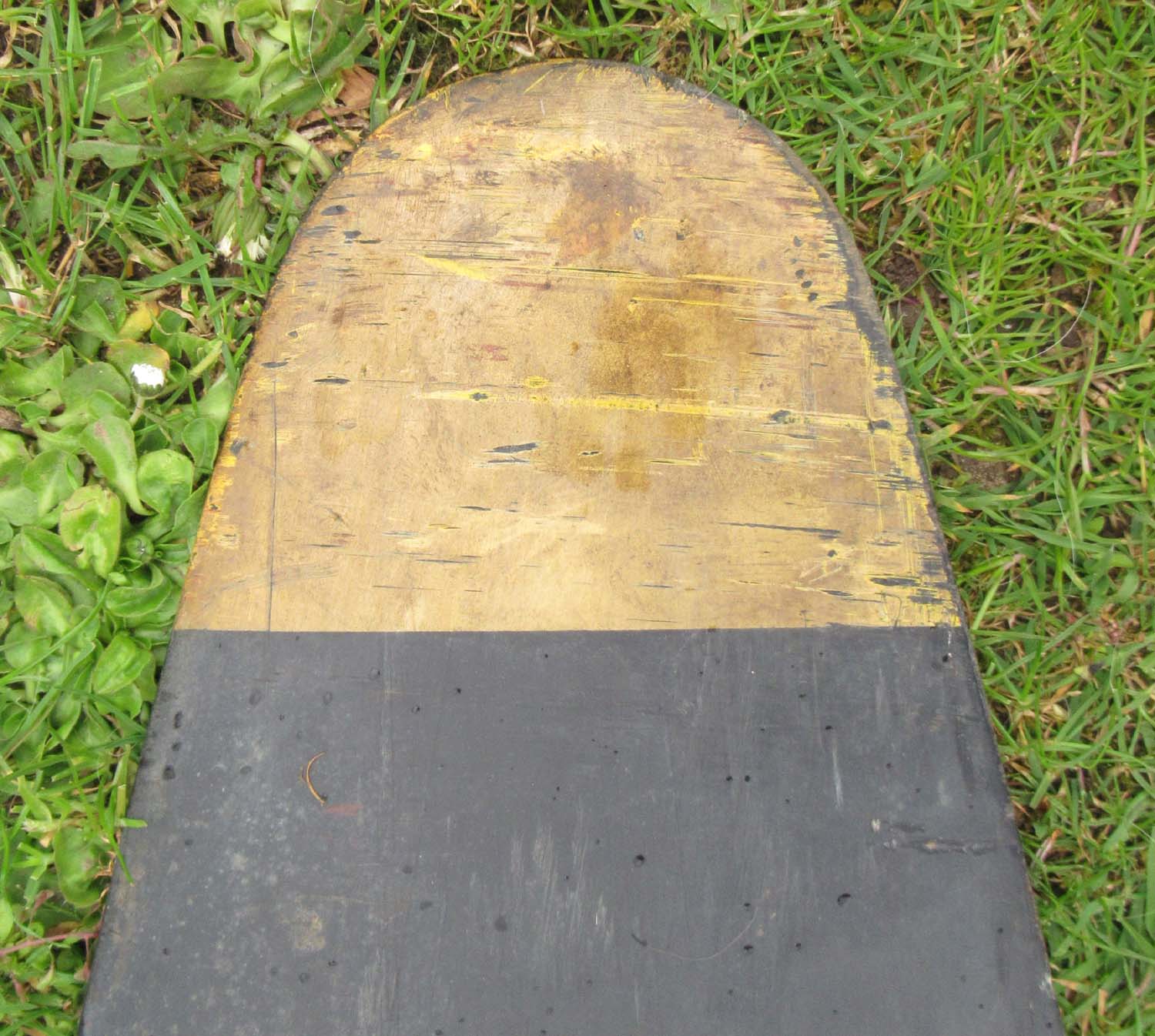
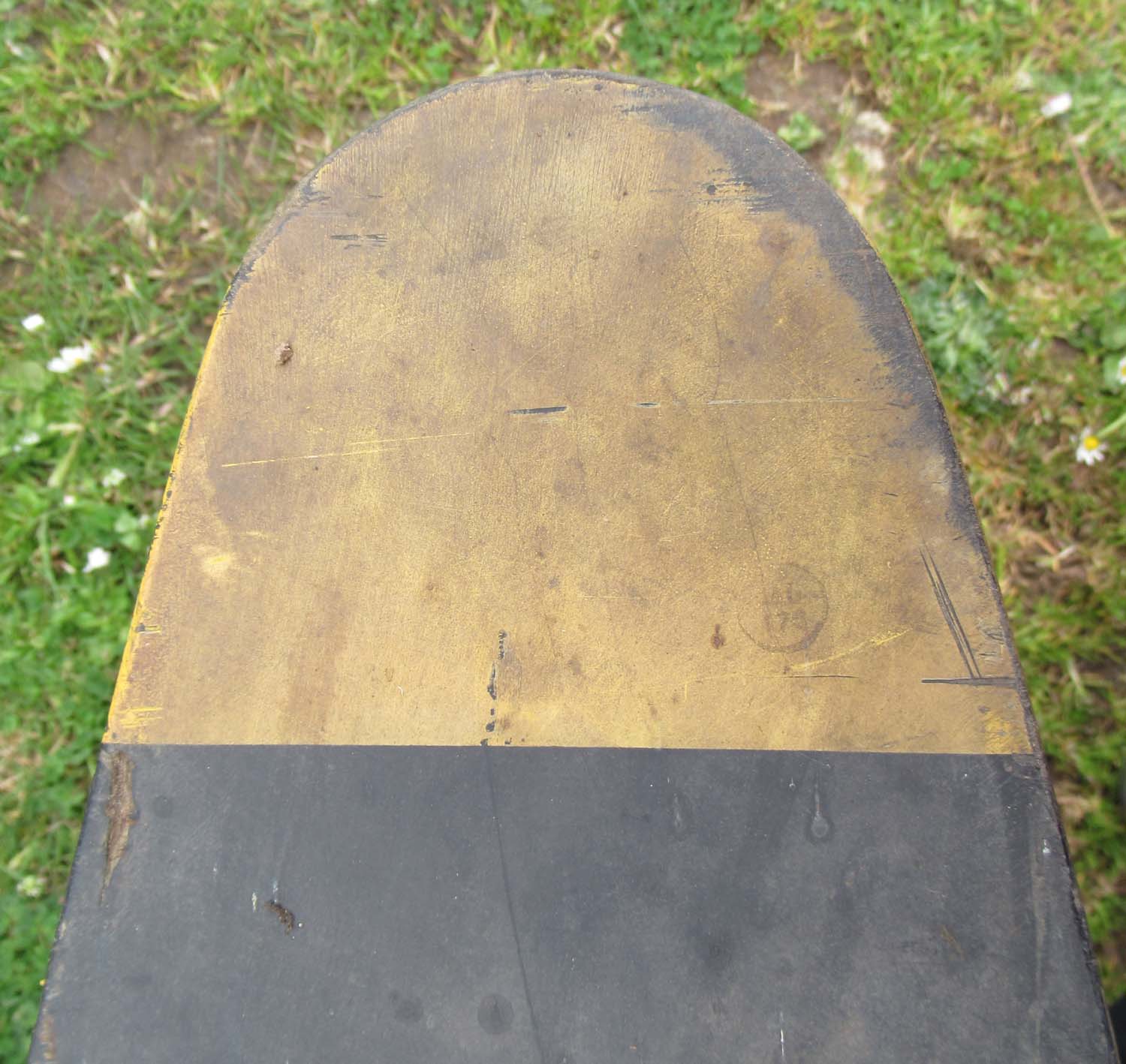
This is a heavy item.
Please
contact us for a shipping quote
Contacting Us.
|
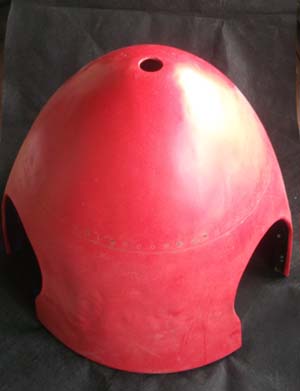
Click on the picture's to
enlarge.
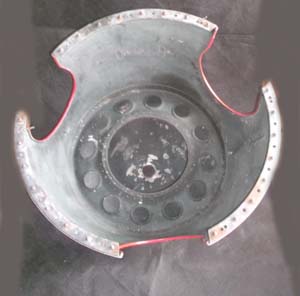
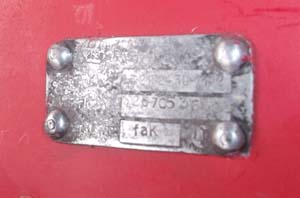
|
Junkers JU 88 Spinner (pg1
Prop)
Here is a spinner from a JU 88 in good original condition.
This a stunning piece and incredibly rare. The ID plate
identifies this as a JU 88 Spinner.
The German part numbering system was superb and the Werk
number actually identifies the specific aircraft this was
fitted to. So far we have been unable to find the
aircraft but the information is there.
The Junkers Ju 88 was
one of the most versatile and effective combat
aircraft of World War II. Its closest counterparts
on the Allied side were the Mosquito and Beaufighter.
The German
aircraft was larger and slower, but nevertheless
very effective. 14,676 were built, including a
staggering 104 prototypes for its 60 different
versions.
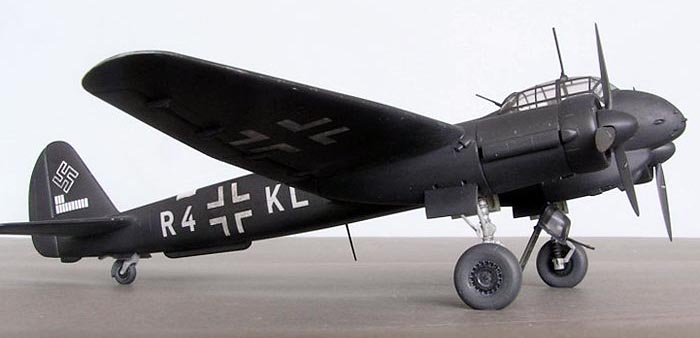
Like the Mosquito,
the Ju 88 originated as a fast bomber. In 1935 the
Luftwaffe had a requirement for a so-called
Schnellbomber, which should have a speed of
500km/h with 800kg of bombs.
This was much
faster than the biplane fighters that then equipped
the German fighter units; it was even faster than
the first models of the Bf 109 monoplane fighter.
For this
ambitious goal Henschel proposed the Hs 127,
Messerschmitt the Bf 162, and Junkers submitted the
designs Ju 85 and Ju 88. Later the Bf 162 achieved
some fame when it appeared on German propaganda
postcards, but this was disinformation, and the real
winner was the Ju 88.
Out of stock more wanted please
contact me
|
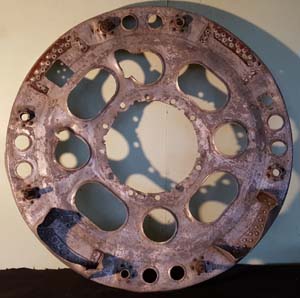
Click on the picture's to
enlarge.
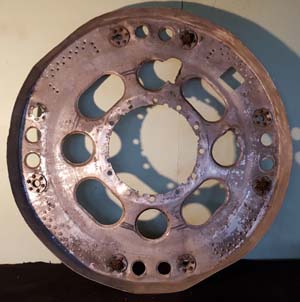
|
Spitfire spinner back plate * (pg1 Prop) This is a
stunning piece 100% original spinner back plate for a four
bladed propeller.
The four blades propeller was first used on the MK IX
and was used on all other Merlin powered Spitfires up to the
introduction of the griffon engine which had a five bladed
prop.
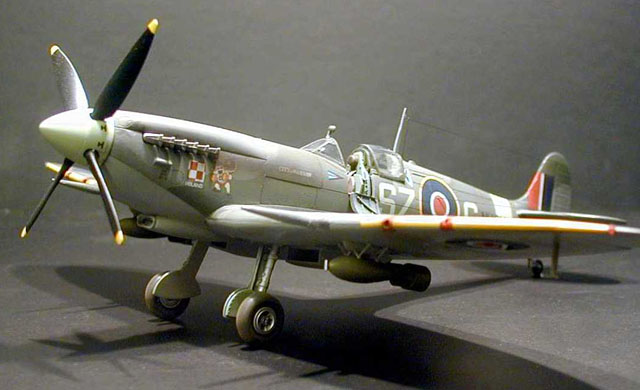
Please enlarge the pictures left
to see condition.
Out of stock more wanted please
contact me
|
|
Click on the Pictures to Enlarge

Out of stock more wanted please
contact me
|
Mk XVIII Spitfire Prop blade (Pg1
Prop)
Here we have prop blade from a Mk 18 Spitfire
which had five blades and was one of the last production Spitfires powered by
the Rolls Royce Griffon 65.
The Mk 18 was a refinement of the Mk XIV. It was identical in
most respects including engine and cockpit enhancements, but it carried extra
fuel and had a revised, stronger wing structure.
The Mk XVIII had both fighter and fighter reconnaissance
variants built.
This prop stands approximately 147 cm high
Serial No R8248
HRS 8283
RA10379
Below the mighty Mk I8
Spitfire
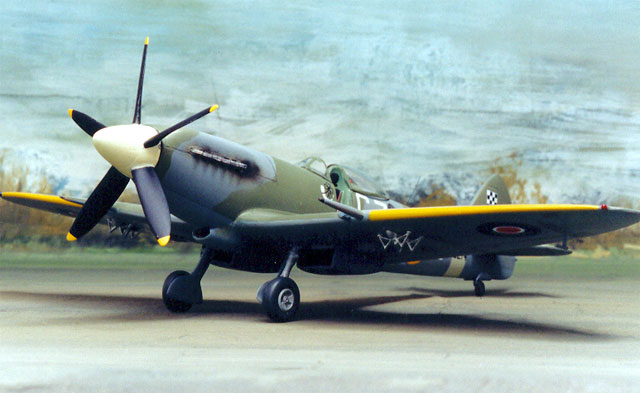 
Click on the Pictures to Enlarge
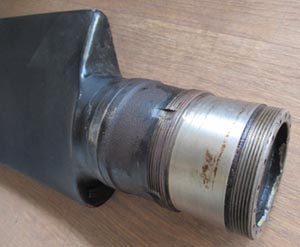  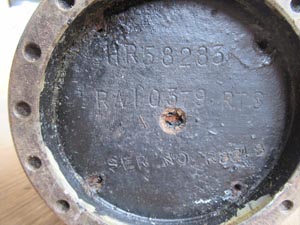

This Propeller is very Heavy and will
be sent at cost
Please Contact us for postage quotes
|

Click on the
Pictures to Enlarge
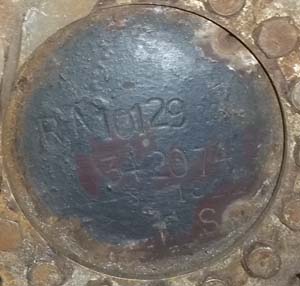
Click on
the Pictures to Enlarge
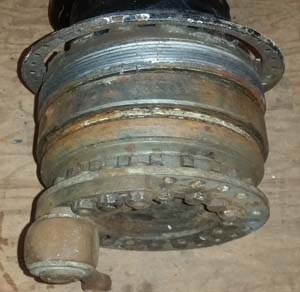
Apply for a
postage quote before purchase by
Contacting Us. |
Supermarine Spitfire Propeller Blade (pg1 prop)
Here we have a Supermarine Spitfire
Propeller Blade from a Spitfire Mk.21
They are Original and still have
the Gearing on the bottom of the Prop
The propeller used on the Mk.21 was a Rotol hydraulic, type
R.14/5F5/2, with 5 wooden blades.
The Drawing Number for these Blades
is RA.10129
With the Mk.21 the classification of Spitfire marks swapped
from Roman to Arabic numerals. The wing of the Spitfire had
changed very little during the aircraft's development.
However, with the Mk 21 the elliptical wing gave way to a
new one with blunted tips and changes to the flaps and
ailerons. The wing was made even stronger and carried four
20mm cannon. The fuselage was redesigned and the whole
airframe was heavier than previous Spitfires, meaning the
undercarriage had to be made more robust. The wheels were
now fully covered by undercarriage doors in flight (this had
been a feature of Mitchell`s first prototype Spitfire and
the prototype Mk III but was not adopted on any production
Spitfire before the 21). The usual engine was a Griffon 61
or 64 with a five bladed prop, although a few were fitted
with the Griffon 85 with six blades in two sets of three
rotating in different directions (known as a contra-rotating
propeller) to use fully the 2,375 hp of the Griffon. The Mk
21 kept the normal bulged cockpit. When first introduced the
Mk 21 had bad control characteristics, these were cured by
modifications to rudder and elevators. 122 were produced.
Supermarine Spitfire Mk.21
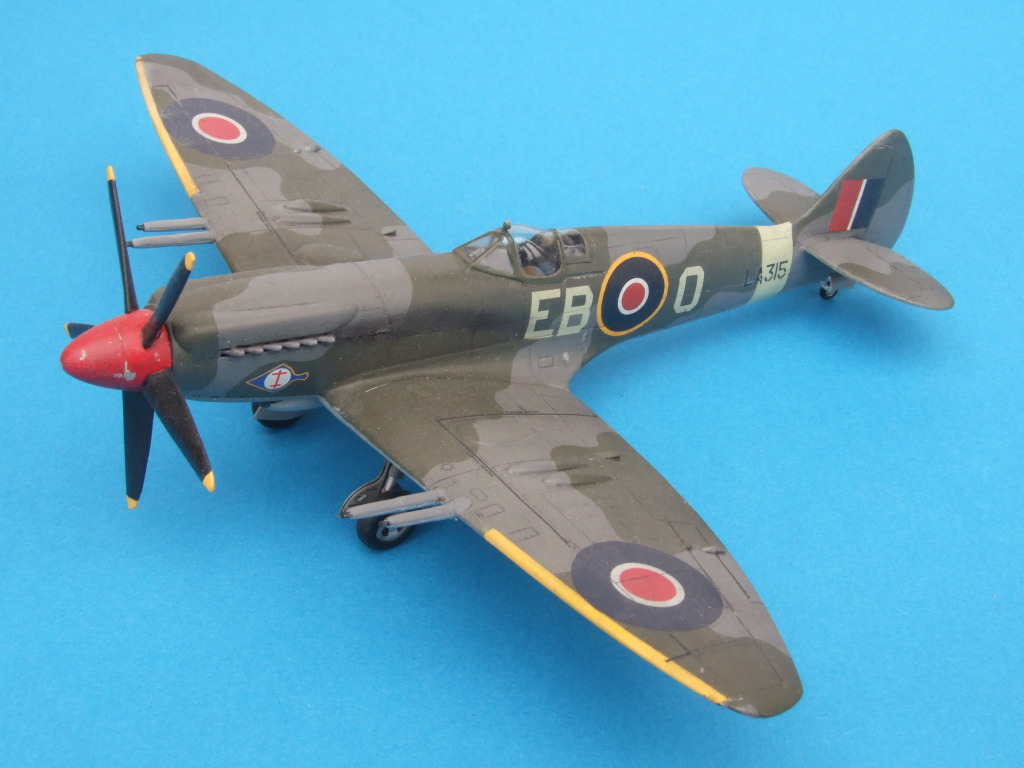

Click on the
Pictures to Enlarge
Out of Stock More Wanted
Contact Us
|
|
Click on the
Pictures to Enlarge



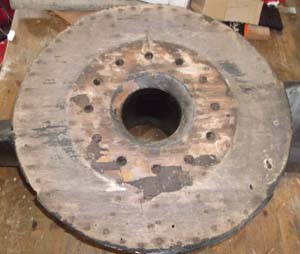


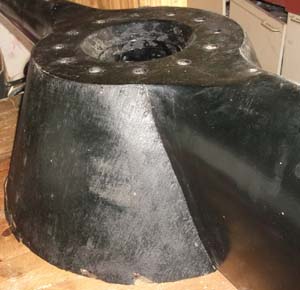

 |
Original Watts MK I Hurricane propeller (pg1 prop)

MK I Hurricane fitted with the Watts
fixed pitch propeller.
This is a quite incredible find
there are only a hand full of these left in existence and is
the holly grail for Propeller or serious aviation
collectors. This is the first original we have ever
seen at Spitfire Spares and its highly unlikely we will find
another. We discovered this in a small Pub hanging on the
wall and it had been there for over 40 years the Landlord
who has been there all that time told us it was up there
when he arrived. You can see it in its last resting place in
the pictures shown left.

This type of Propeller which is s
solid fixed pitch wooden prop was fitted to the very first
prototype and operational Hurricanes and Spitfires using the
Merlin II power plant. This particular prop was made
specifically for the Hurricane, we can establish this from
the serial number on the ID plate and the length of slightly
over 11ft. Spitfires has shorter propellers at just over 10
Ft . It is constructed of laminates of wood with a
plywood cone formed around the hub which formed part of the
spinner. Everything on this prop is 100% original. As you
can see from the pictures there is some slight damage to the
tips and it probably suffered this on landing causing it to
be replaced. The plywood cone also has some damage but
considering its over 75 years old its in remarkable
condition. we have not cleaned it yet and it is covered in
dust.
It is dated very accurately to the
Month of July 1939 on the data plate two months before the
start of WWII this would make it one of the last fixed pitch
propellers ever fitted to the Hurricane, the last Hurricane
fitted with this type of propeller was delivered to the RAF
on the 6th October 1939. Hurricane L 1980 was the
first Hurricane to be fitted with the new De Havilland
three bladed variable pitch propeller.
Click on the
Pictures to Enlarge


Although we cannot track its origin
to a single aircraft Hawker produced between one and two
Hurricanes a day and so between July and September a maximum
of between 90 and 180 Hurricanes would have been
fitted with this type of propeller. This is superb piece of
History and extremely rare when the very first Hurricanes
and Spitfires were introduced propeller technology had not
caught up with these advanced fighters, this was the last of
the fixed wooden propellers ever to be used on an RAF front
line Fighter aircraft.
Out of
stock more wanted
contact us
|
|
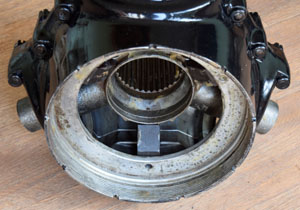
Click on the picture's to
enlarge.
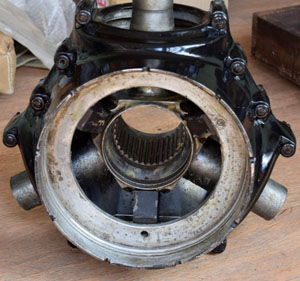
|
Merlin XX Prop hub and Spider (pg1 prop)
This is a prop hub and spider
from a Merlin MK XX in very nice condition, I believe it
would be suitable for a static runner.
The Merlin XX Engine was rated at 1,240-horsepower (924 kW)
at 2,850 rpm at 10,000 feet .The engine used in Bristol
Beaufighter II, Boulton
Paul Defiant II,
Handley Page Halifax II and V, Hawker Hurricane II and IV,
and Avro
Lancaster I and III.
Click on the picture's to
enlarge.
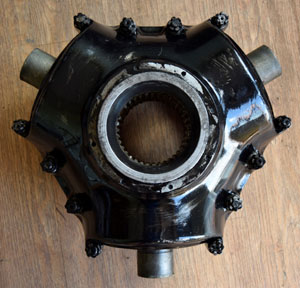 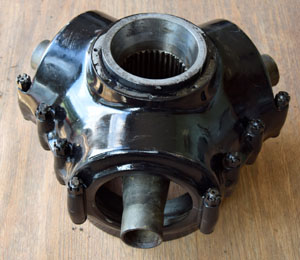 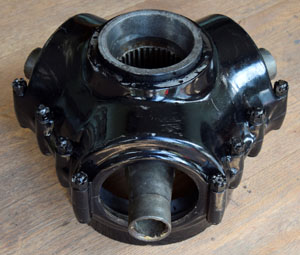 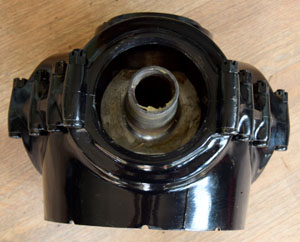
Out of Stock More Wanted
Contact Us


|
 |
Picador Propeller (pg1 prop)
This propeller was fitted to a Picador Drone: (ML Aviation
U120D target aircraft into which the Picador engine was
fitted, why the
sea is full of Picador engines", it's because the radio
control systems of the 1950s were very rudimentary, the
range was limited, the telemetry was non-existent, and the
operators inexperienced. If the aircraft went out of sight,
behind a cloud, or had any problem, they lost control and
the aircraft came down. It did have a parachute, but as it
was or should have been over the sea, the plane was still
lost.
This prop is in nice
condition and would make a great display piece. The alloy
nose cone can be easily removed if preferred. It is not a
huge piece and measures 1.4m or 54" . Madeby the Airscrew
company of Weybridge

I do not know if this is the aircraft this prop was
fitted too but its the best picture I could find of an
unmanned target drone
.
PROP N/A
WANTED DO YOU HAVE A PICADOR YOU WANT TO SELL
CONTACT US
|










































































































































